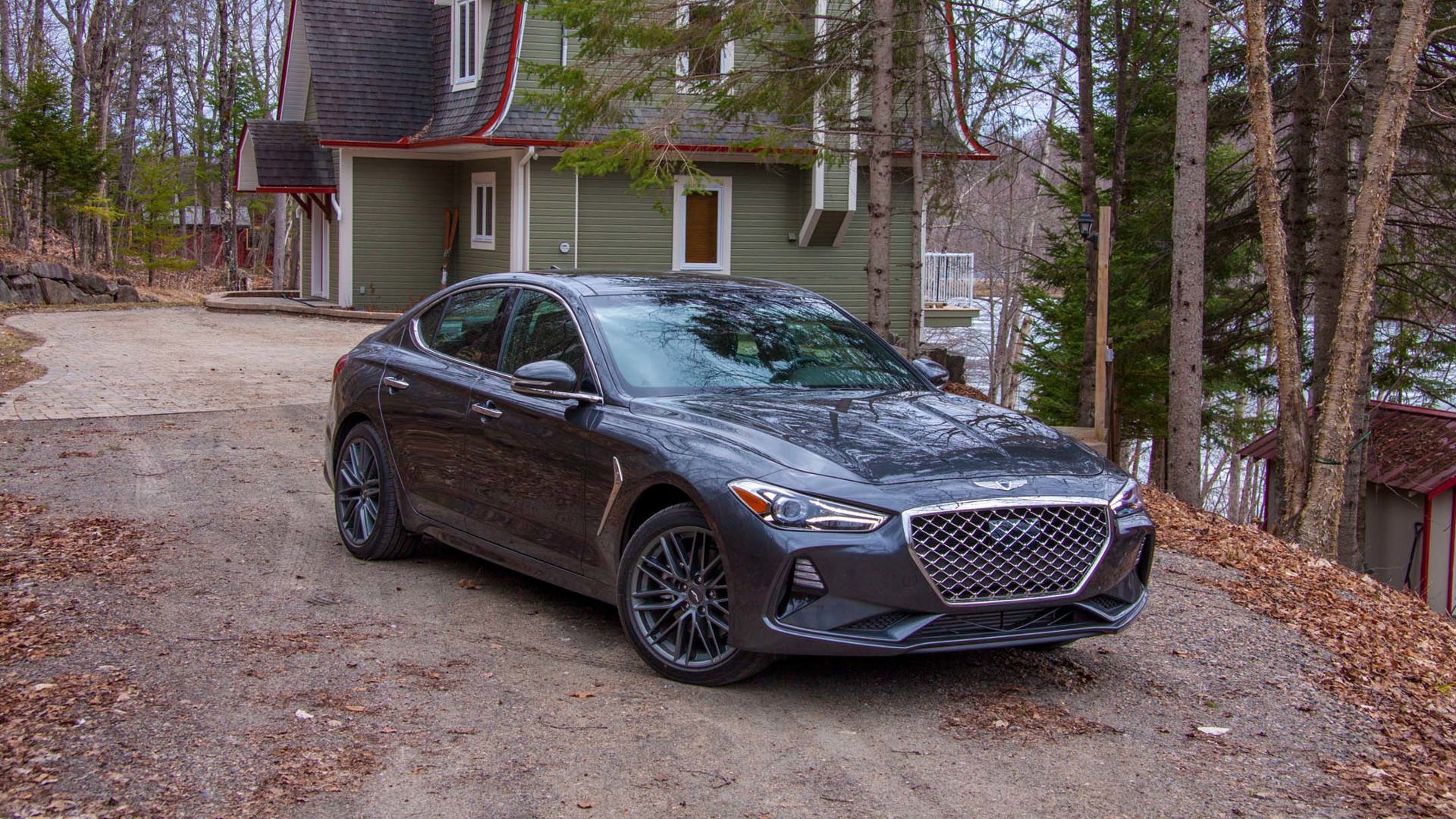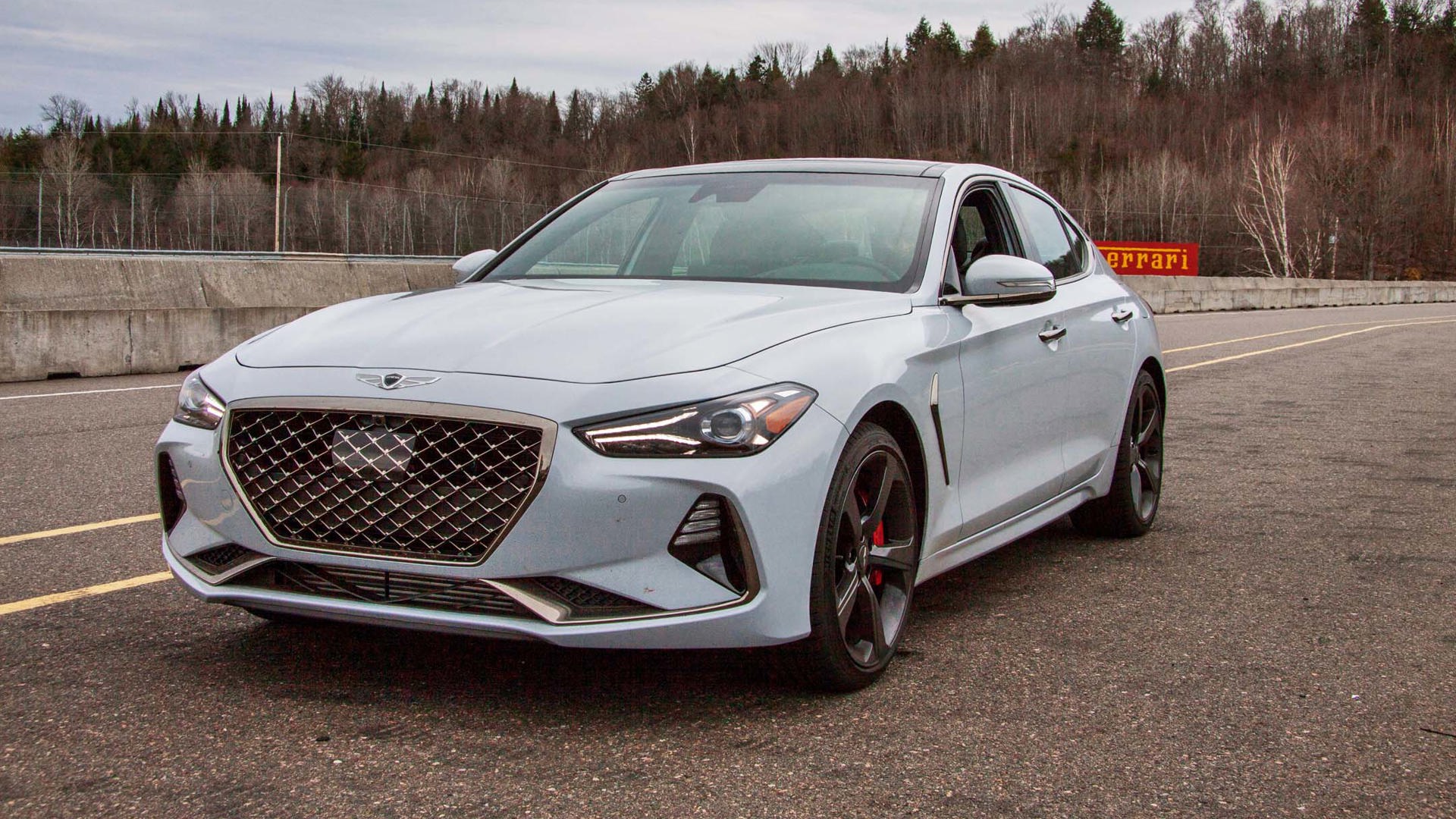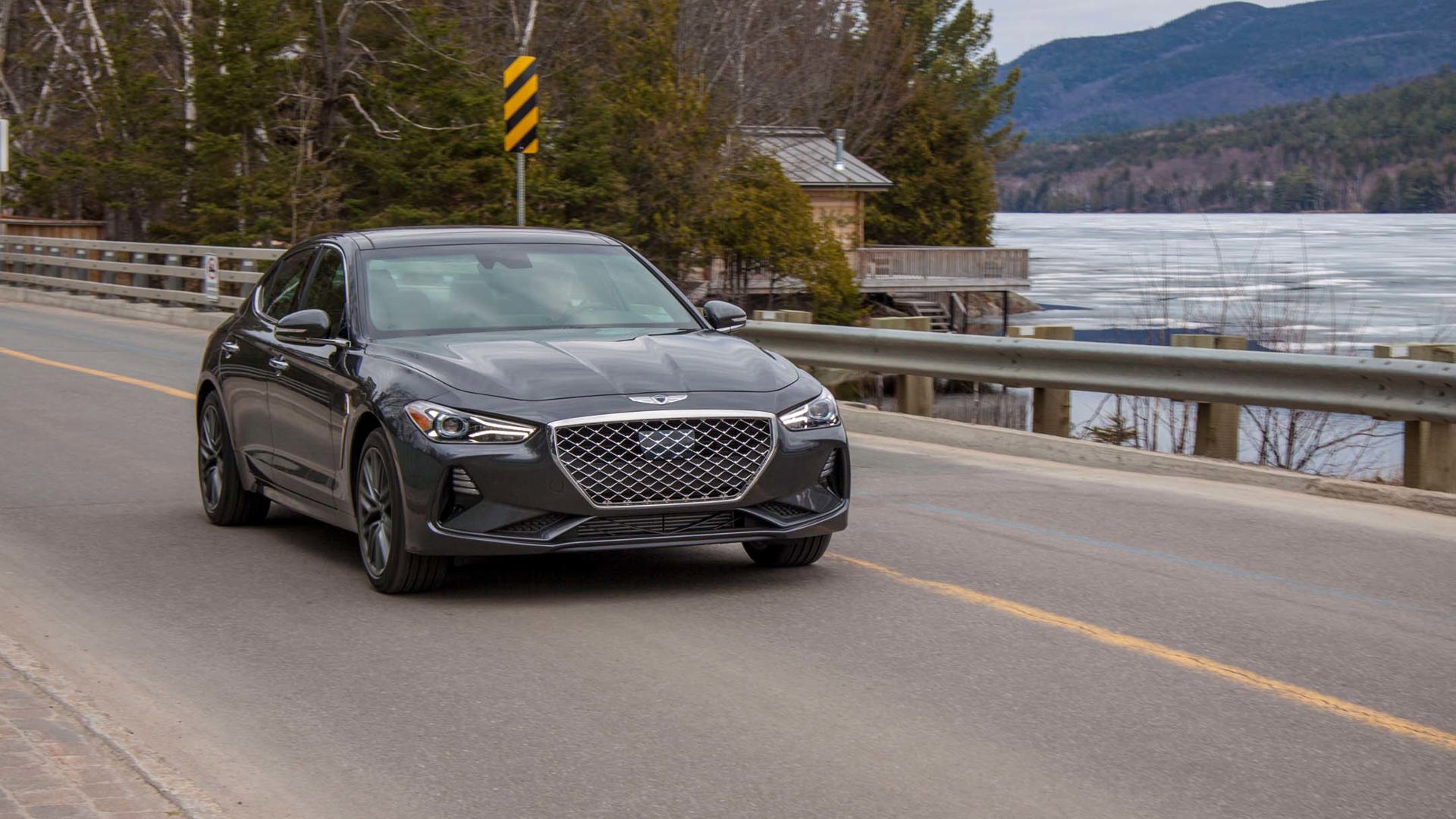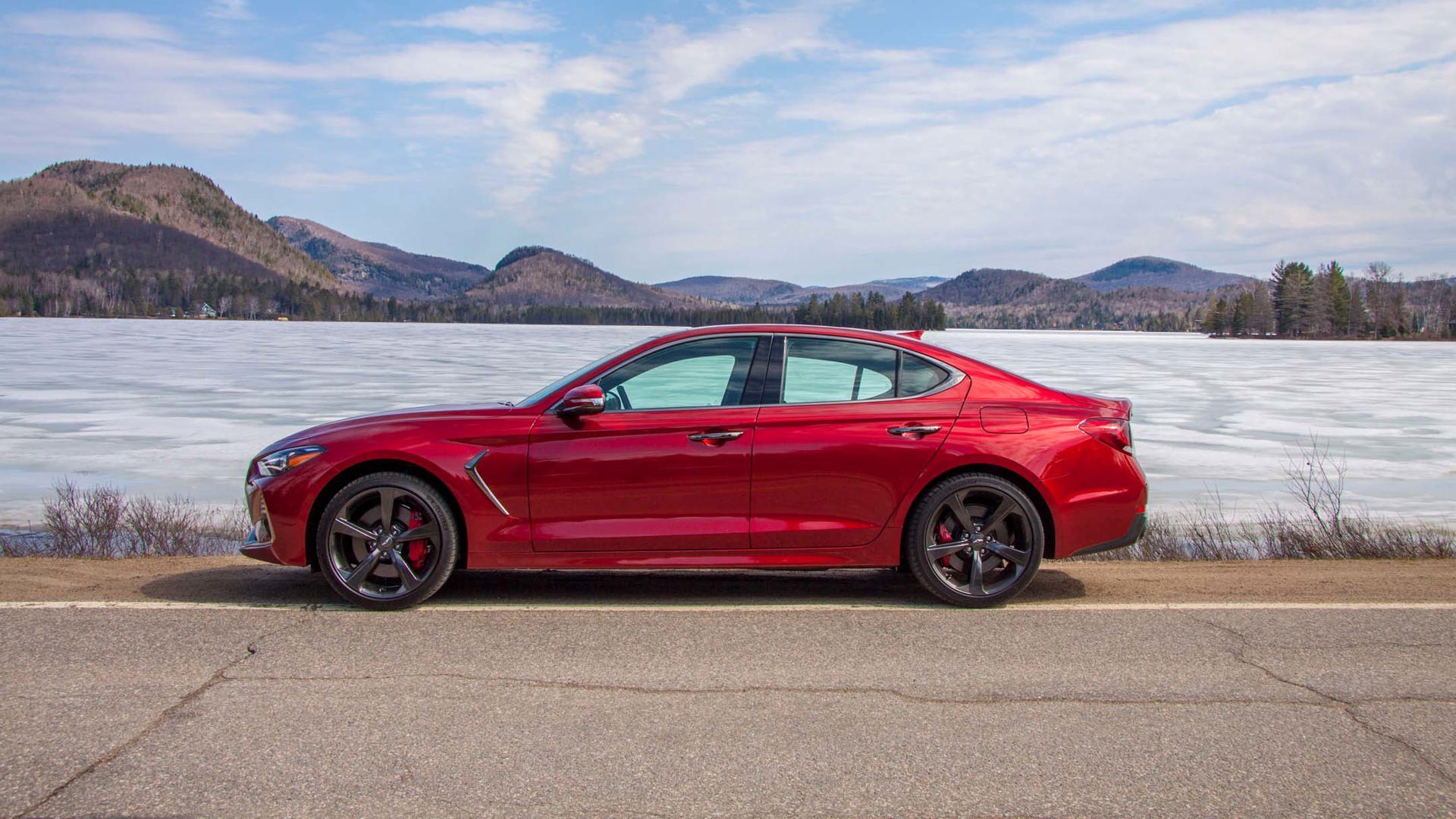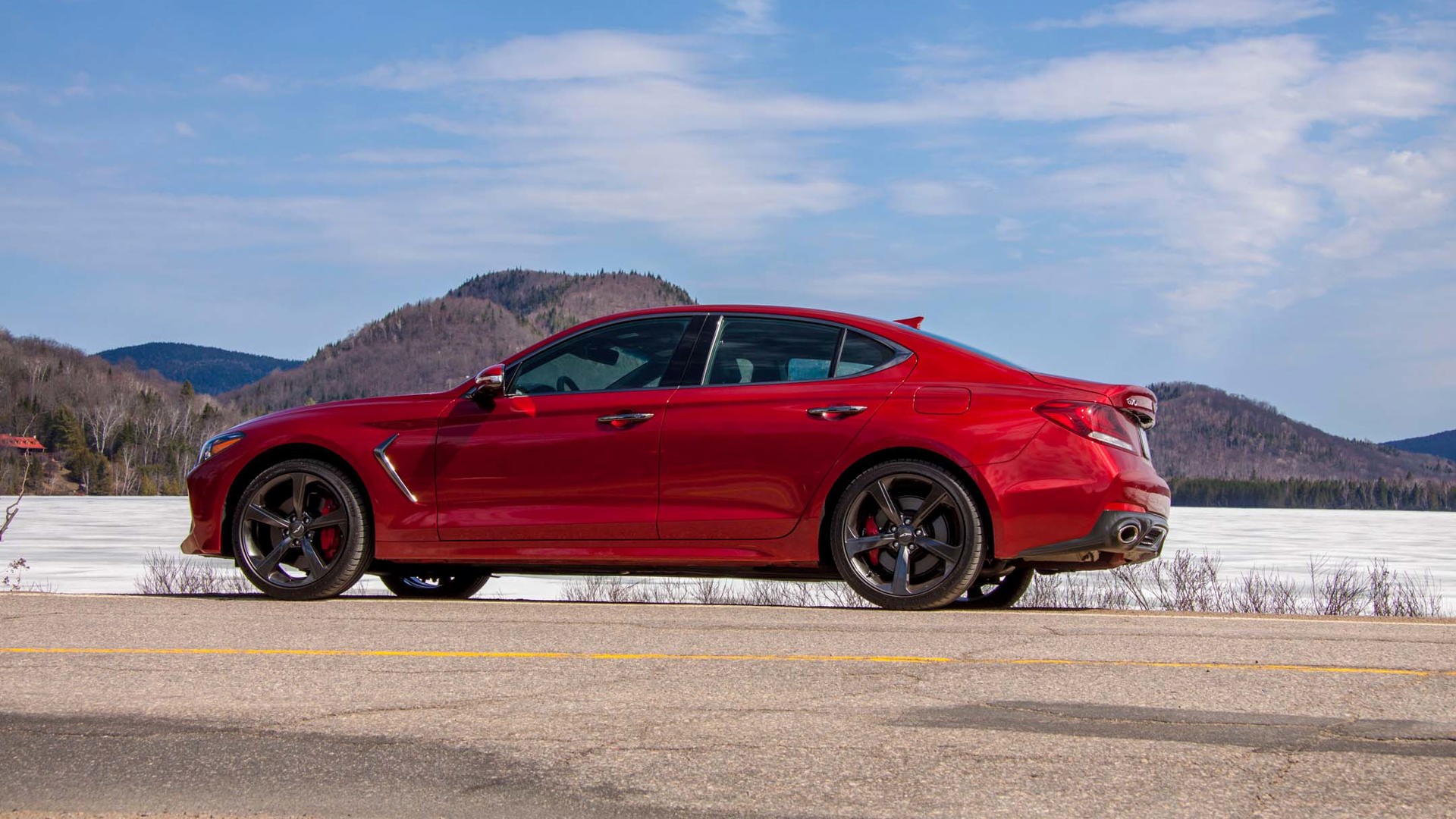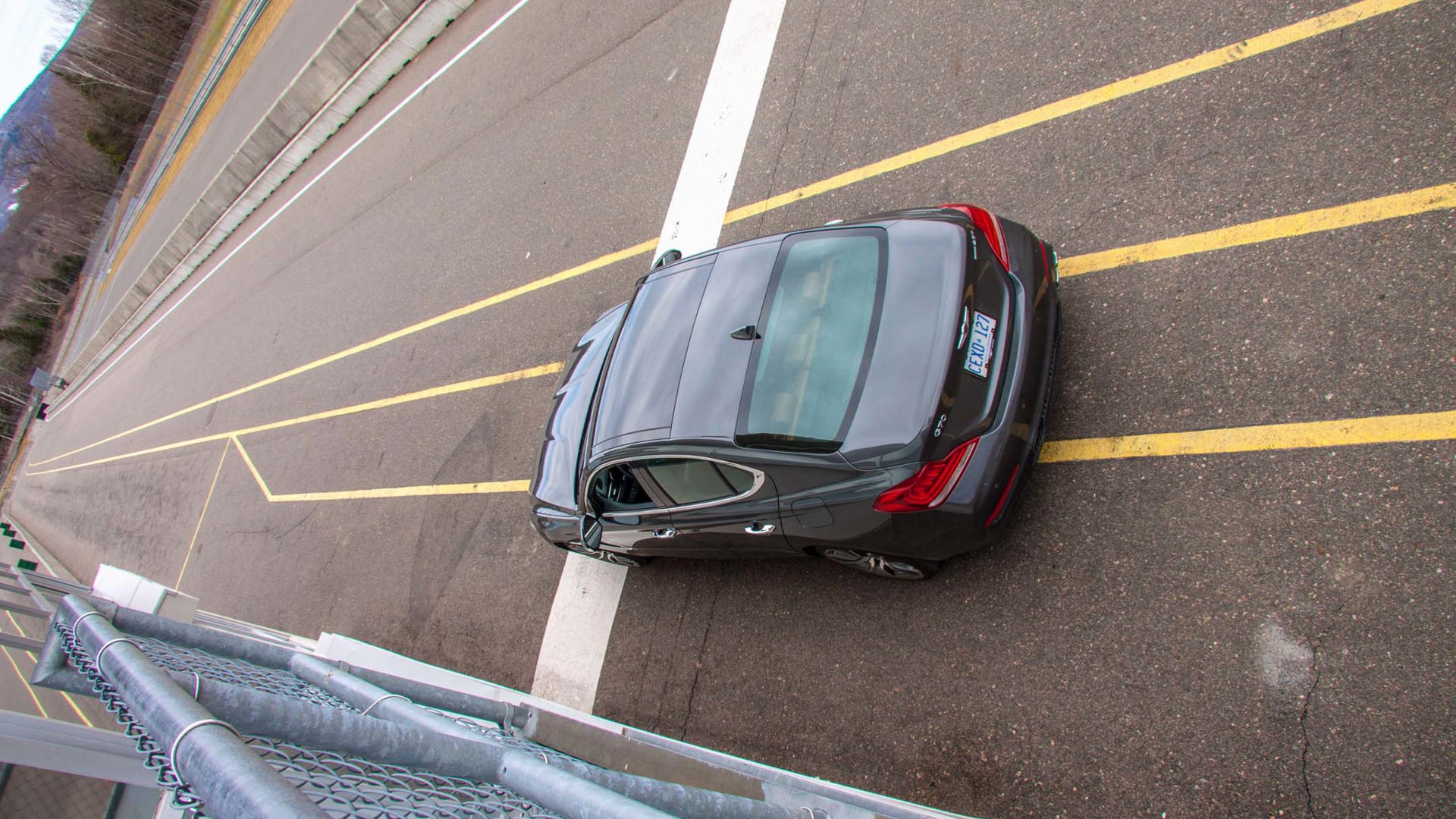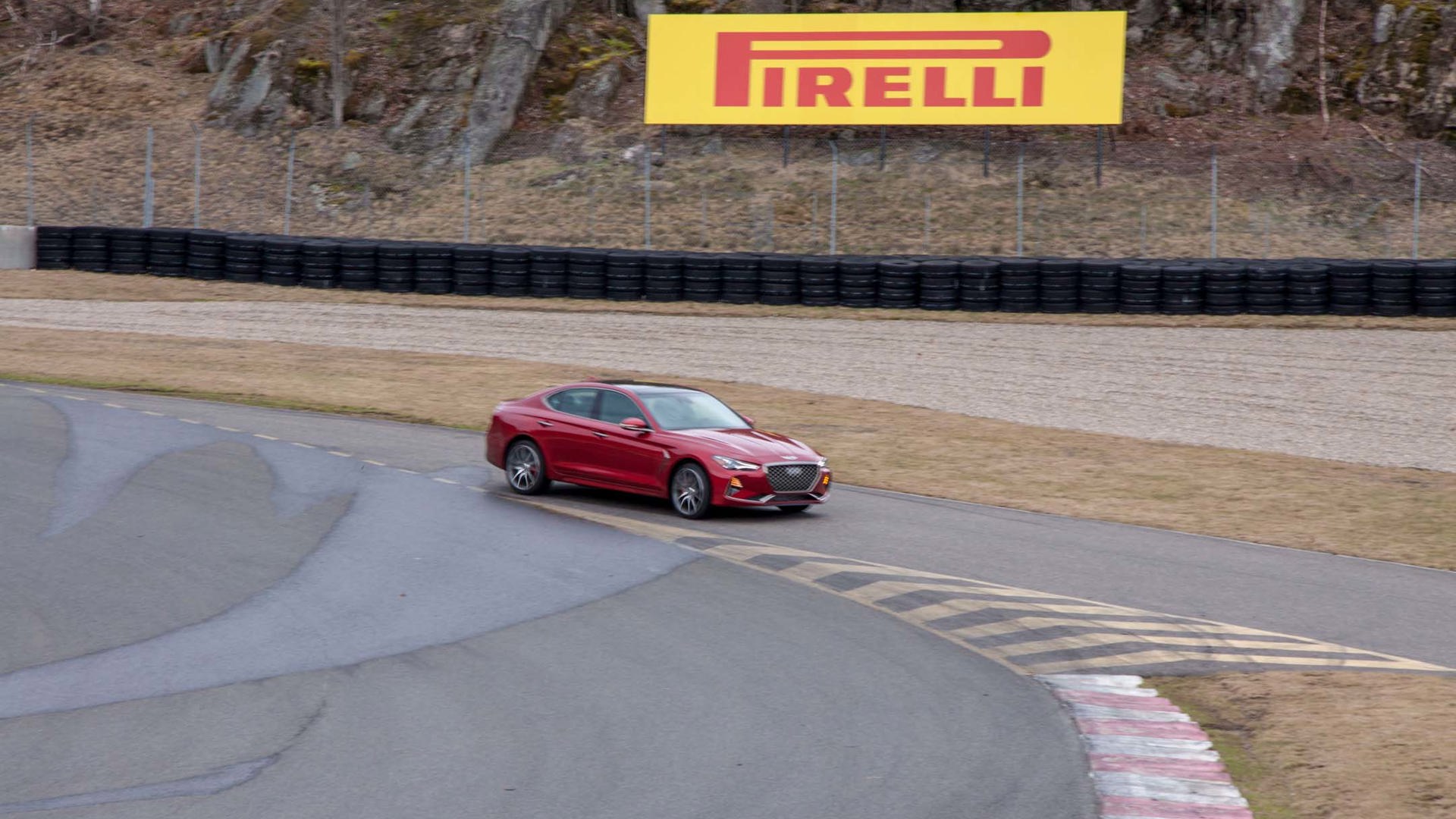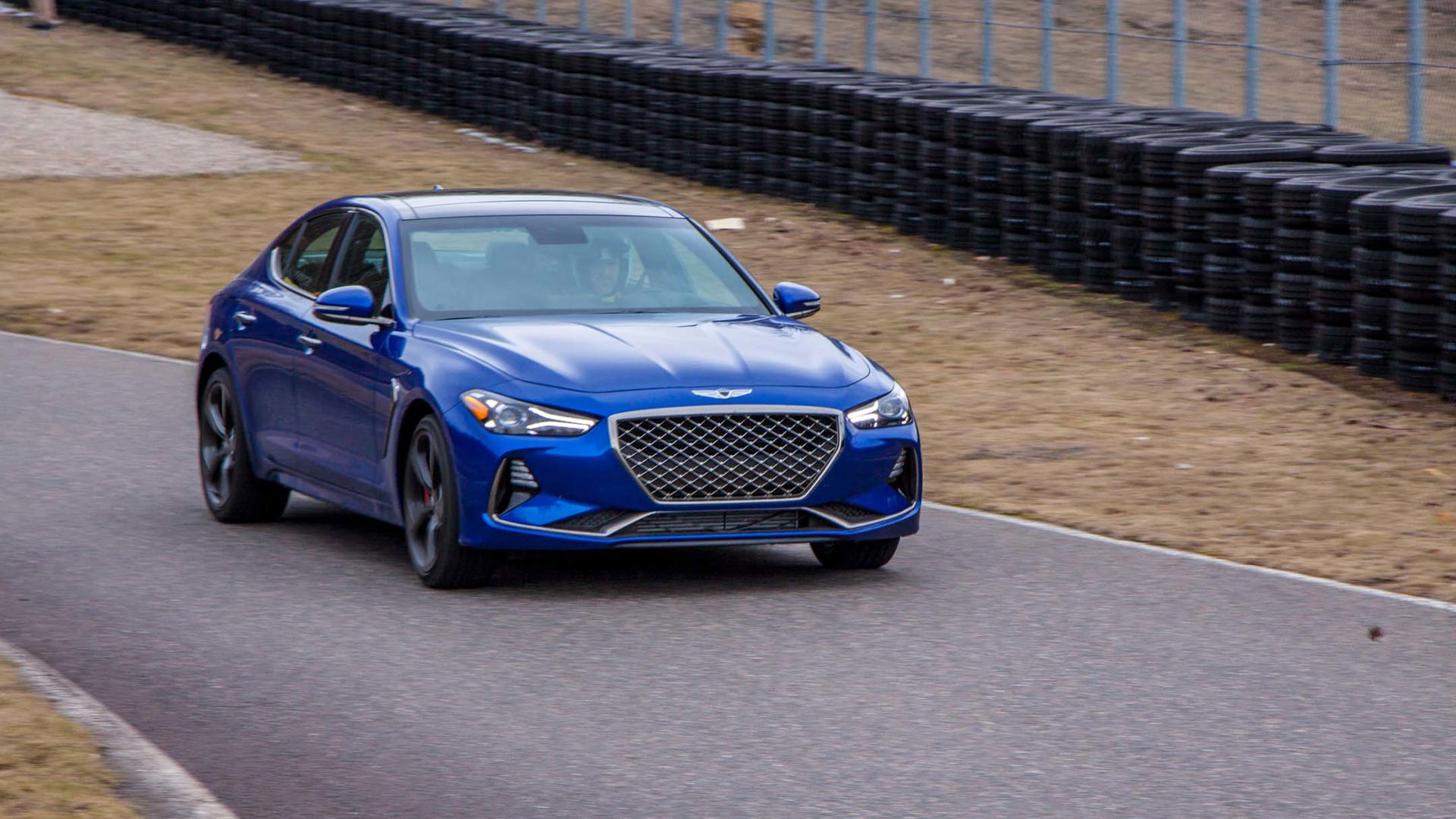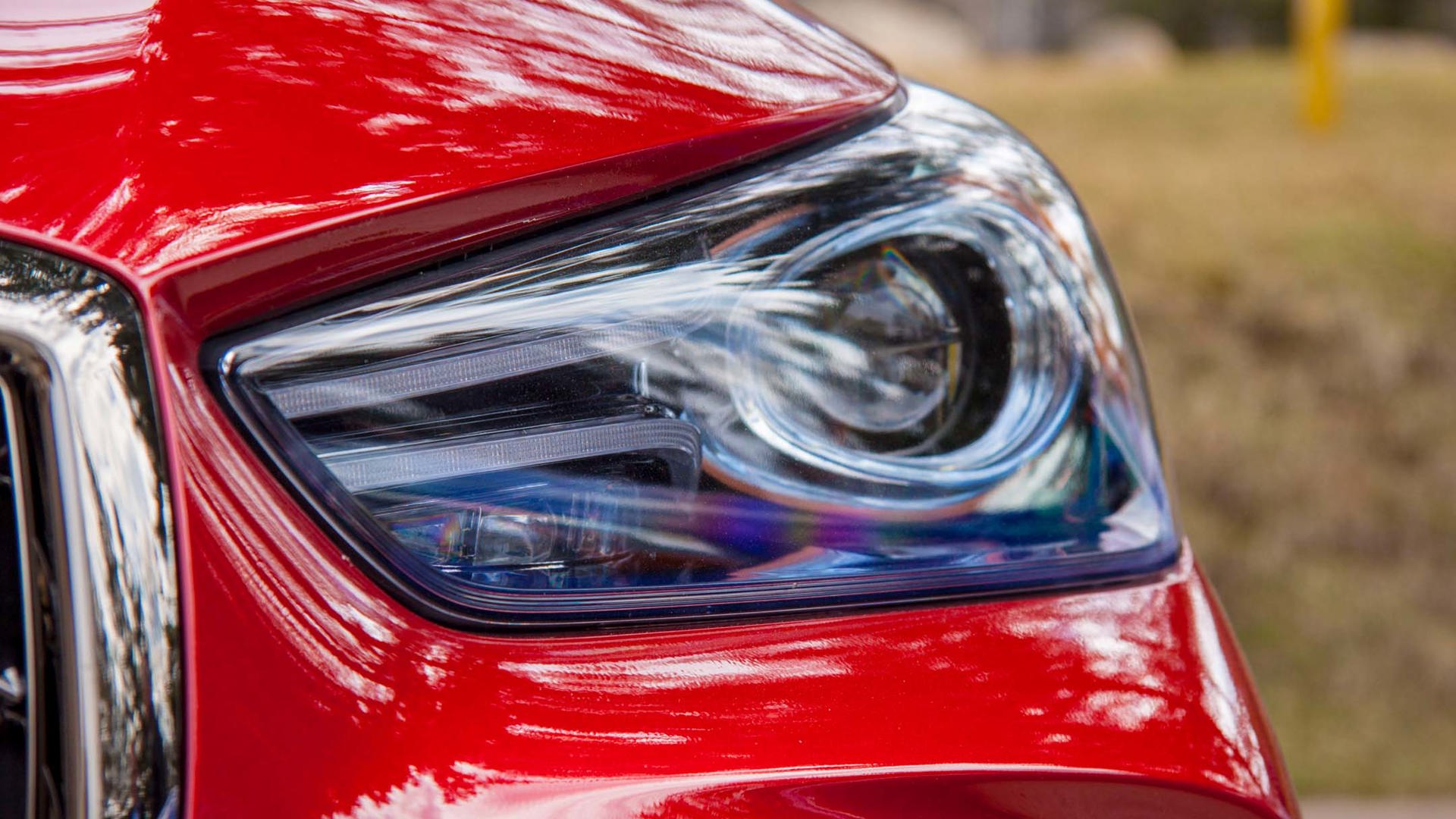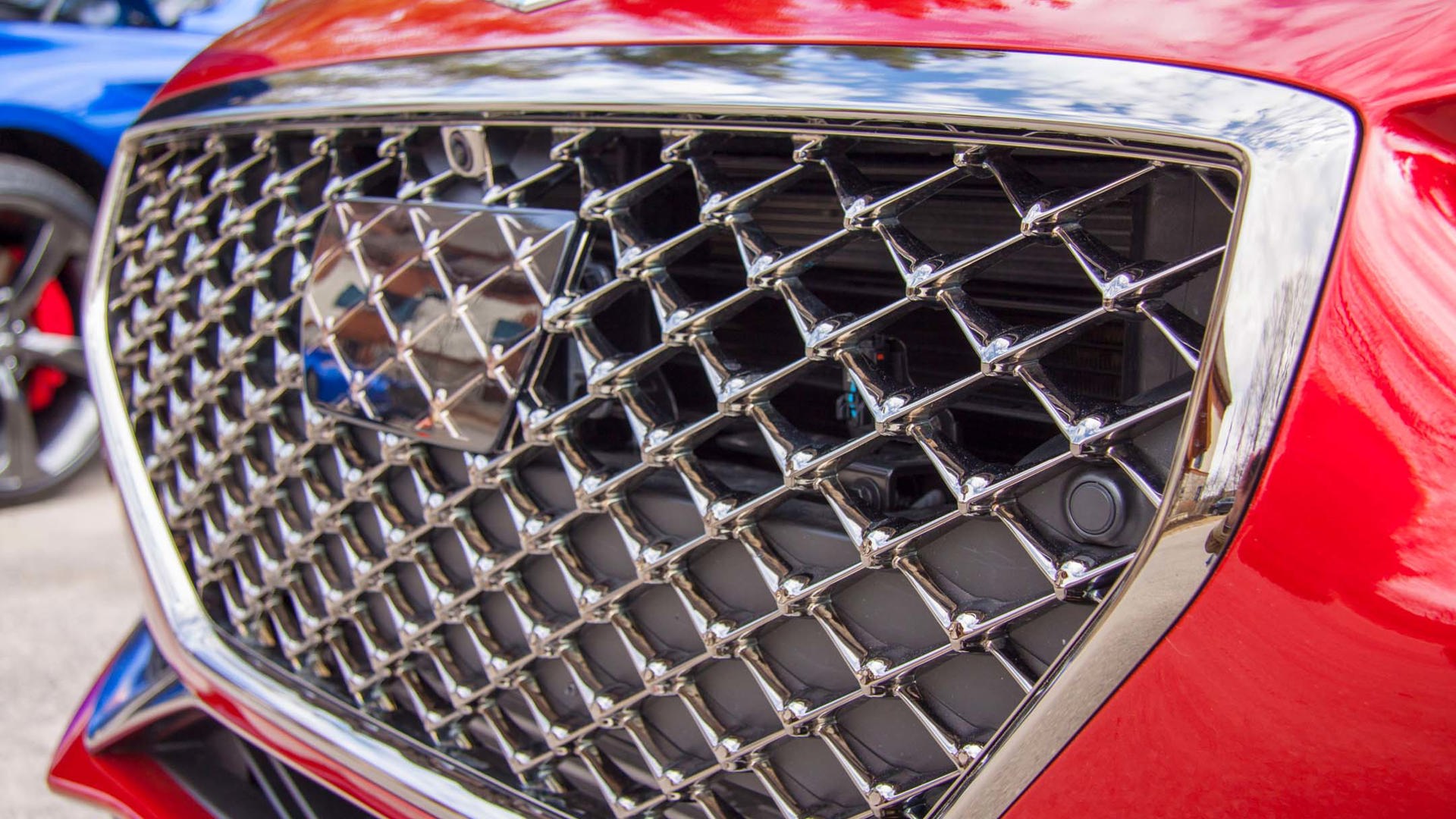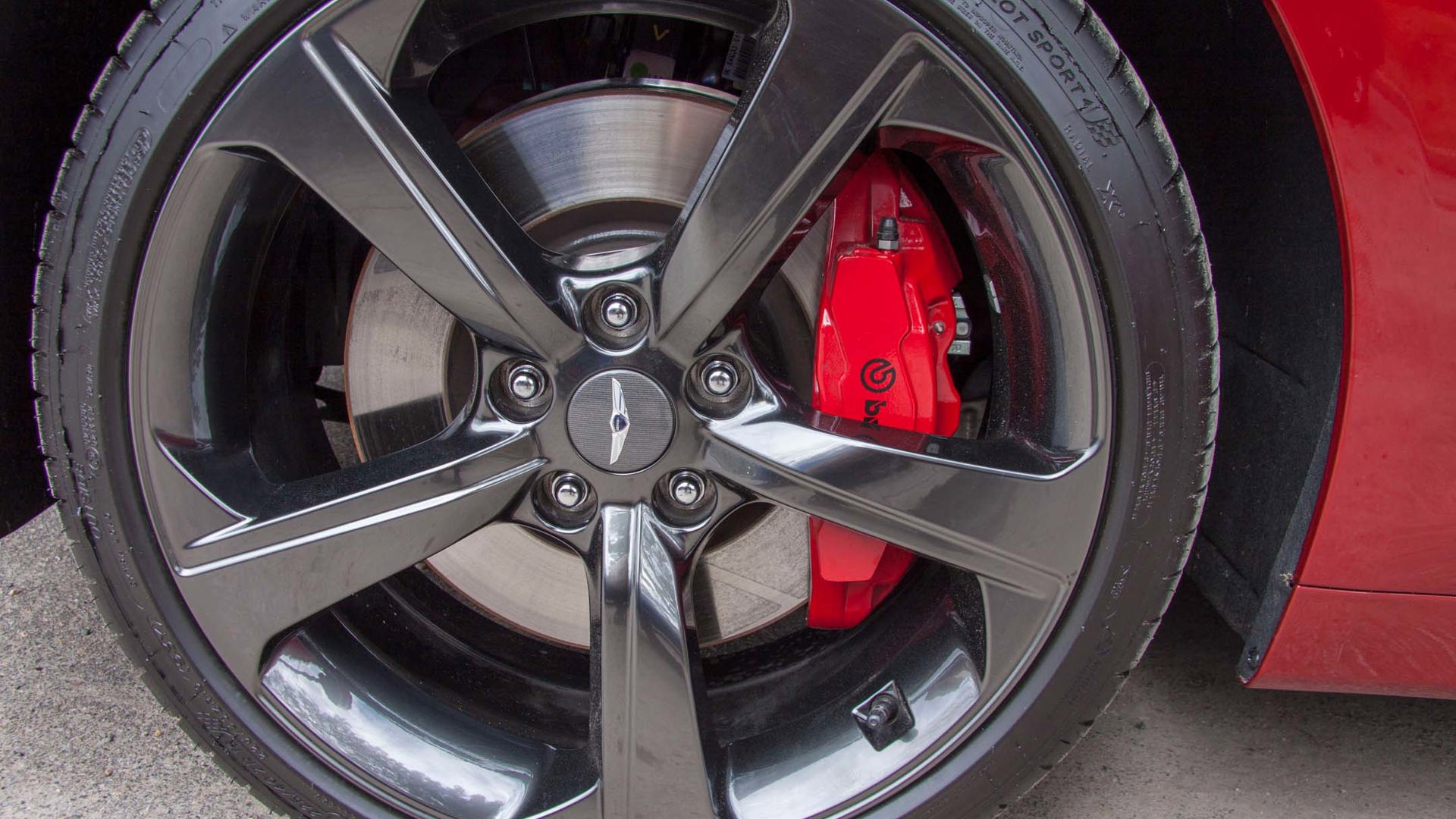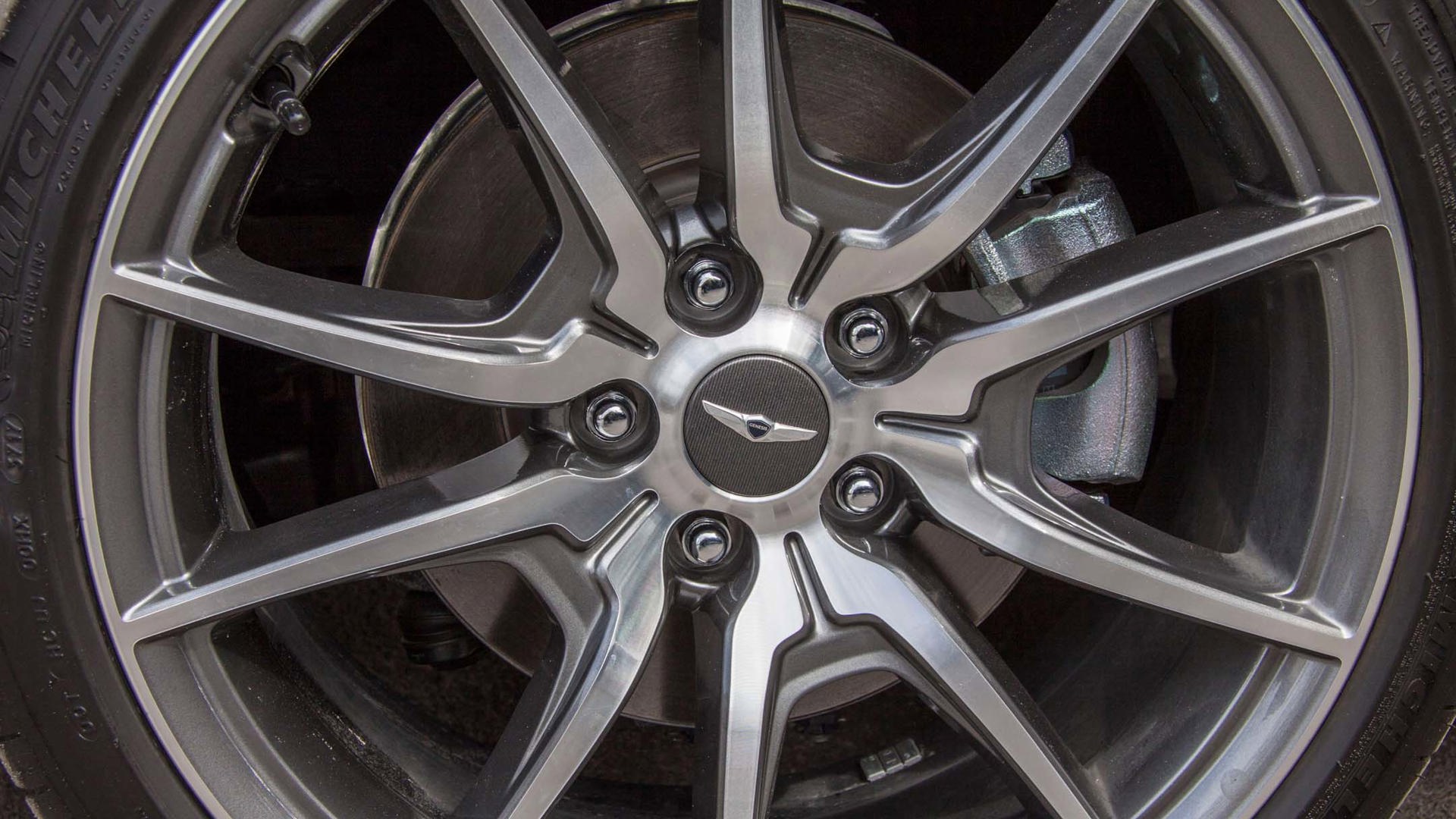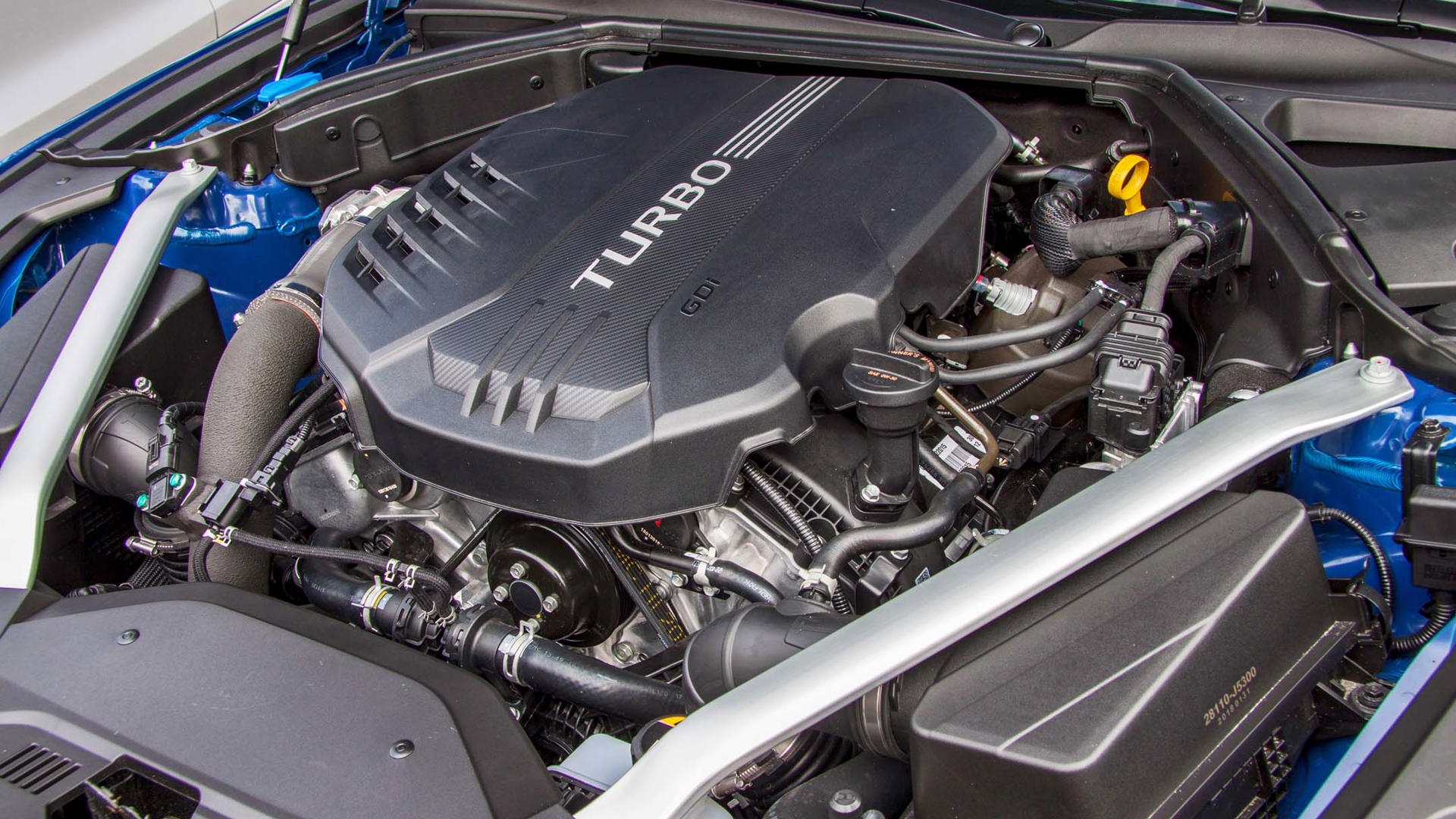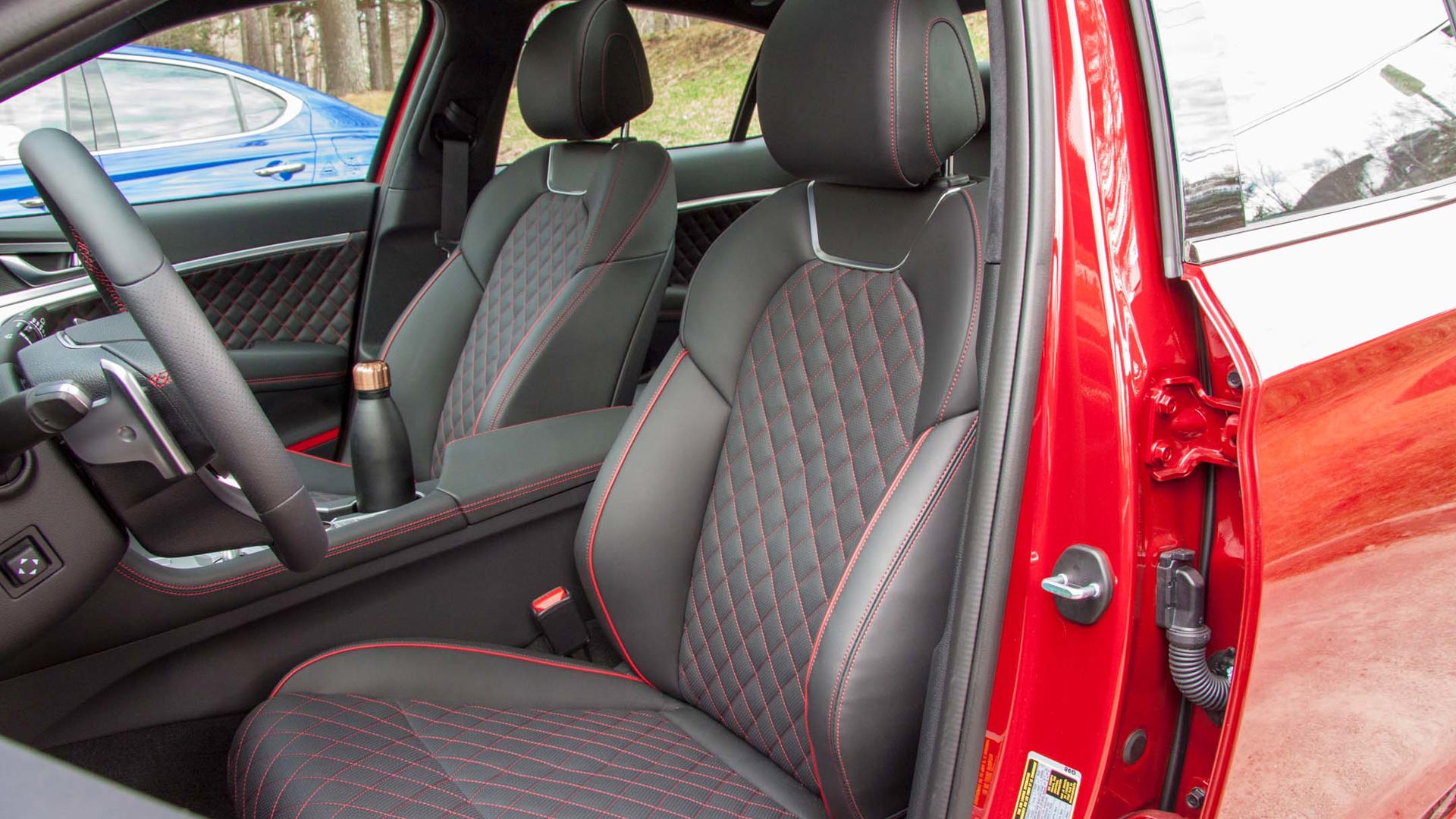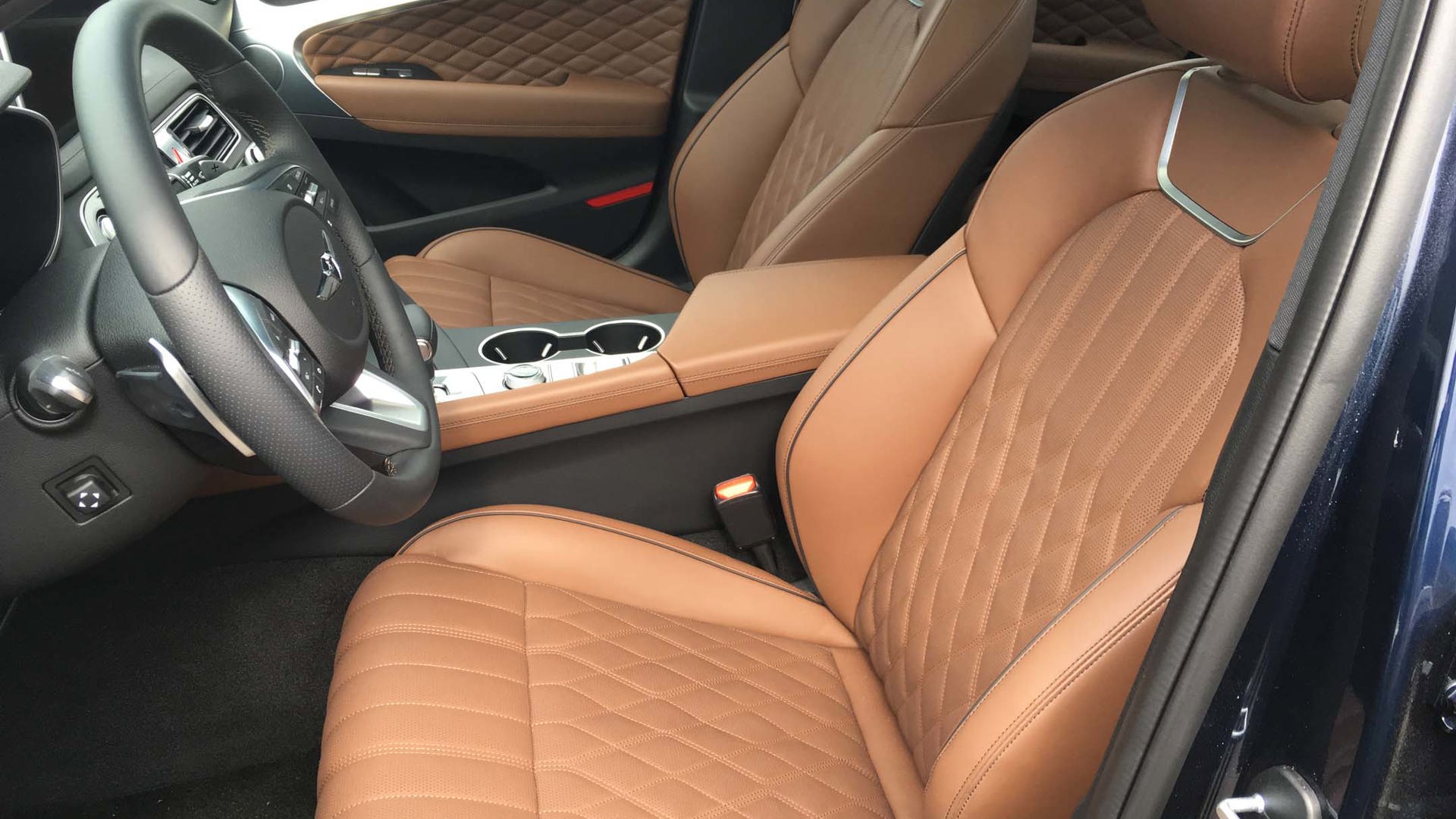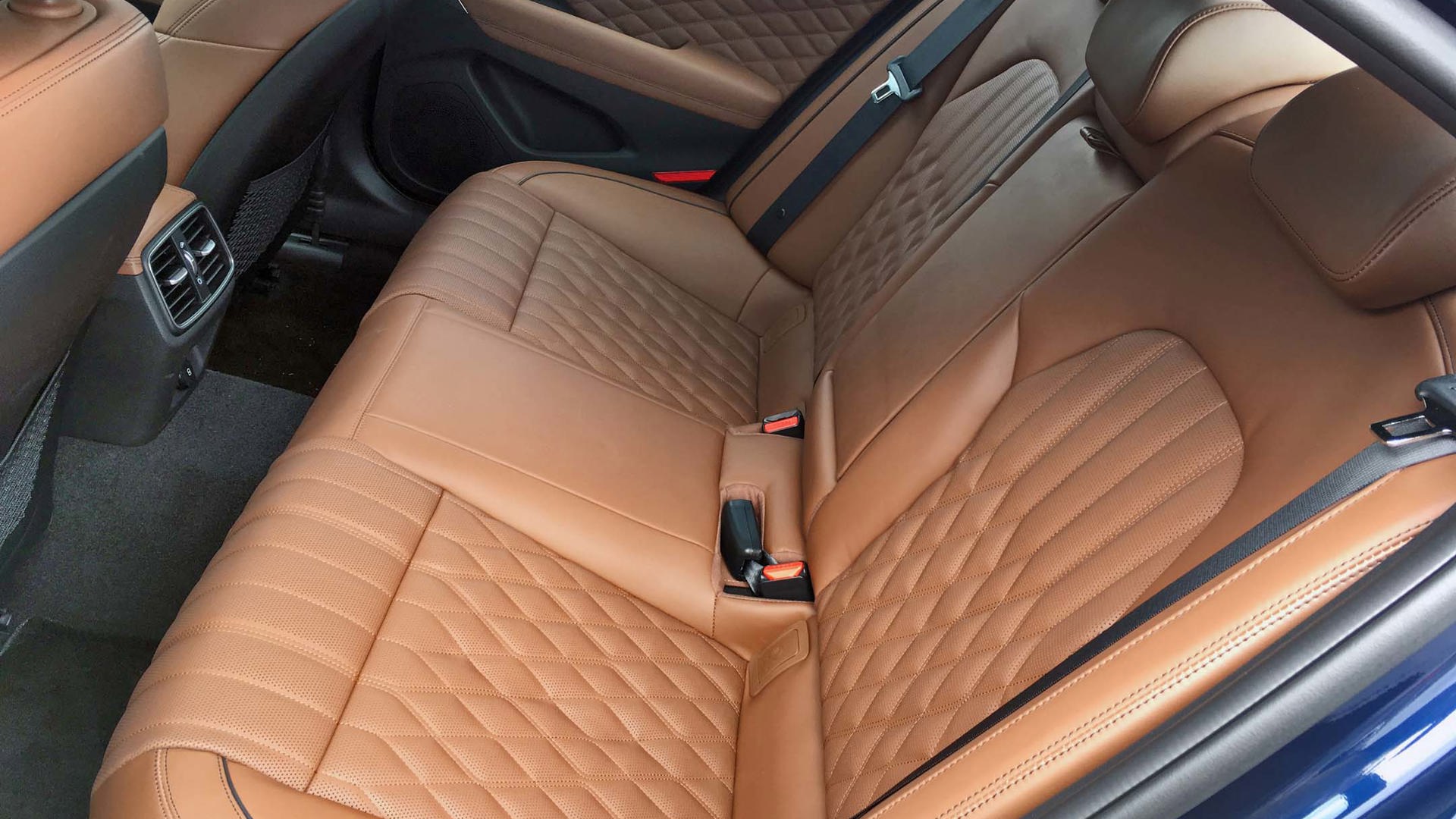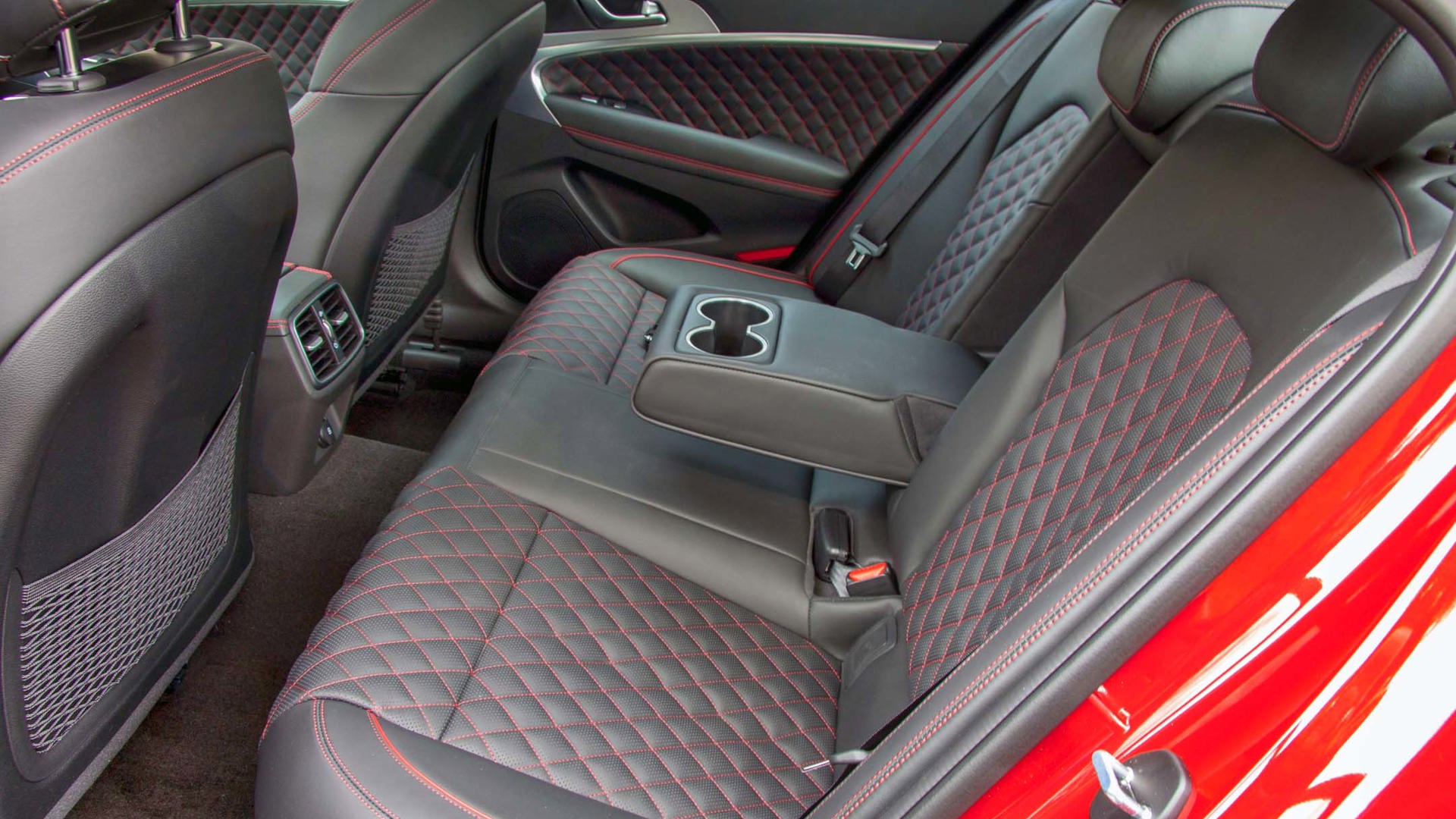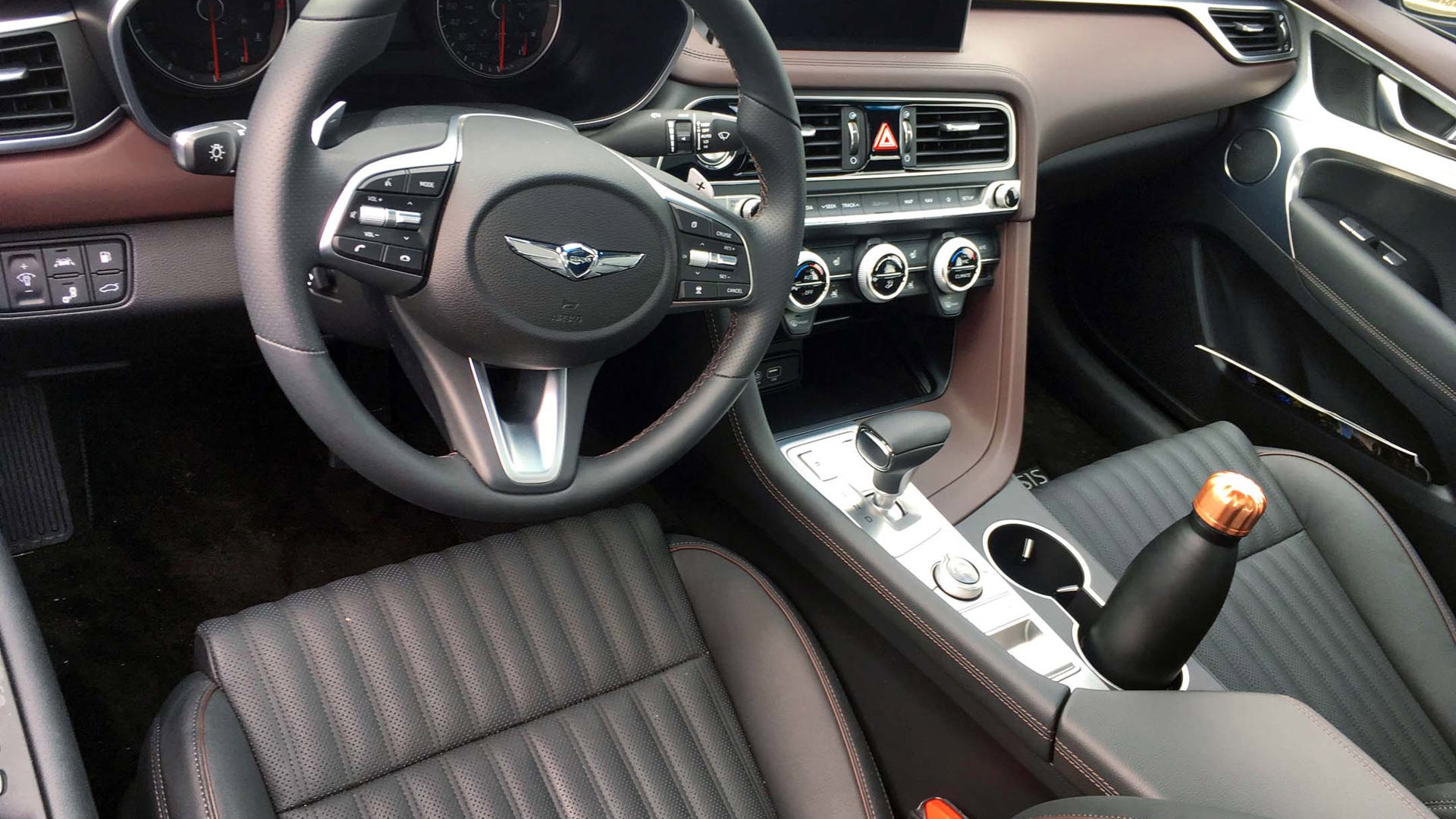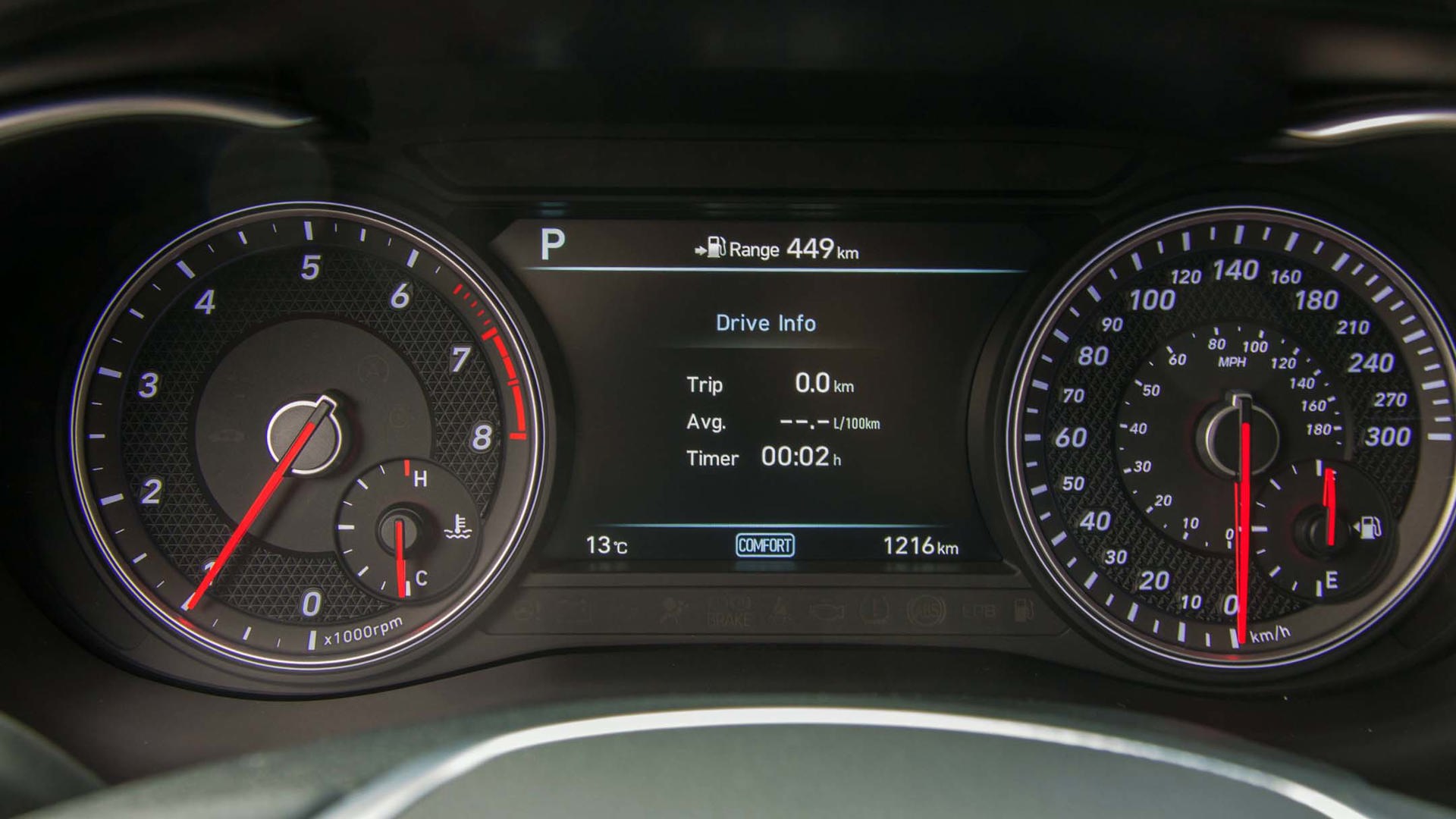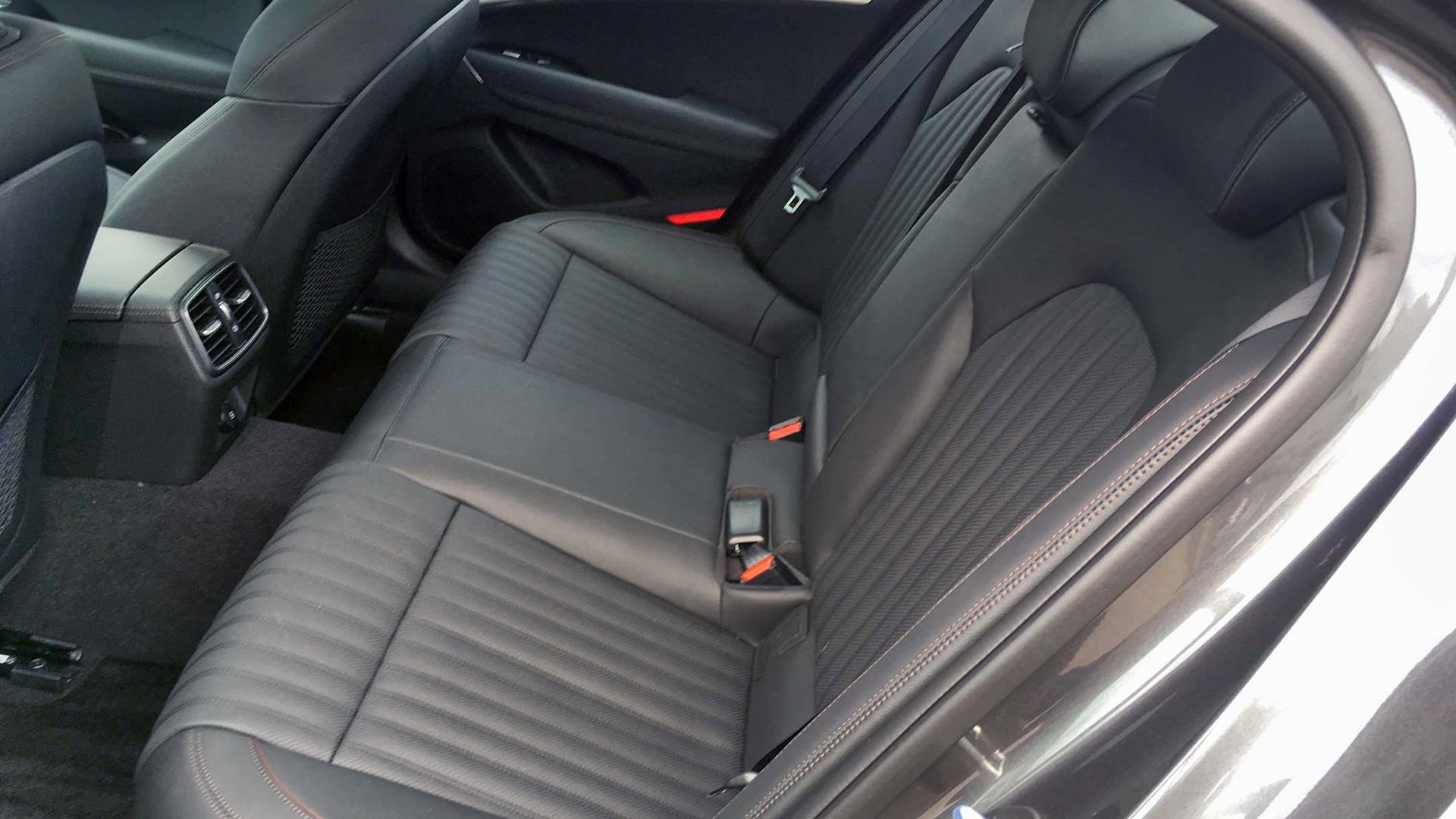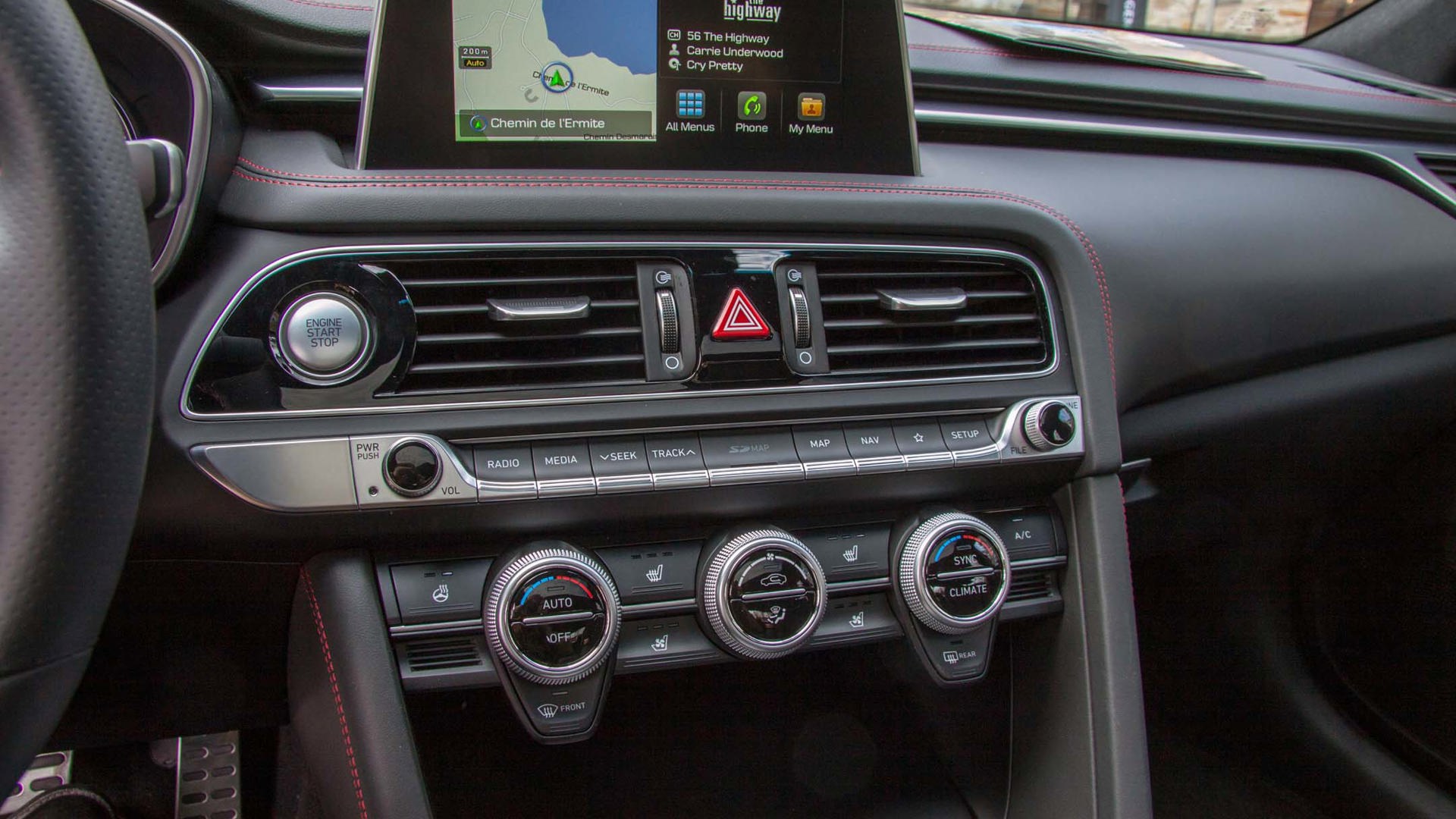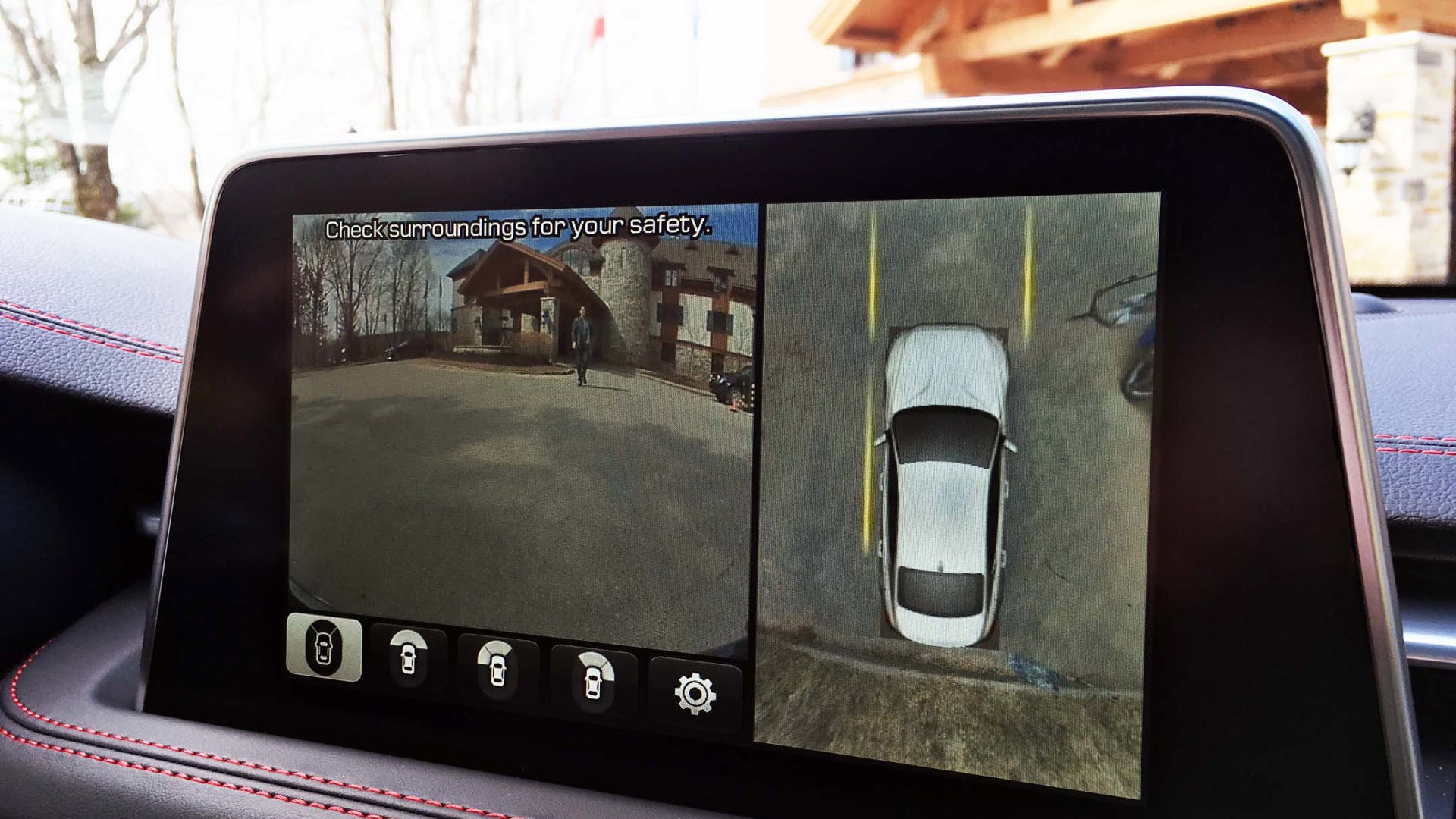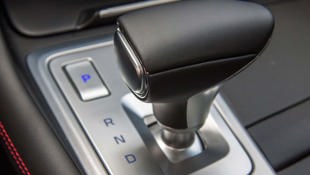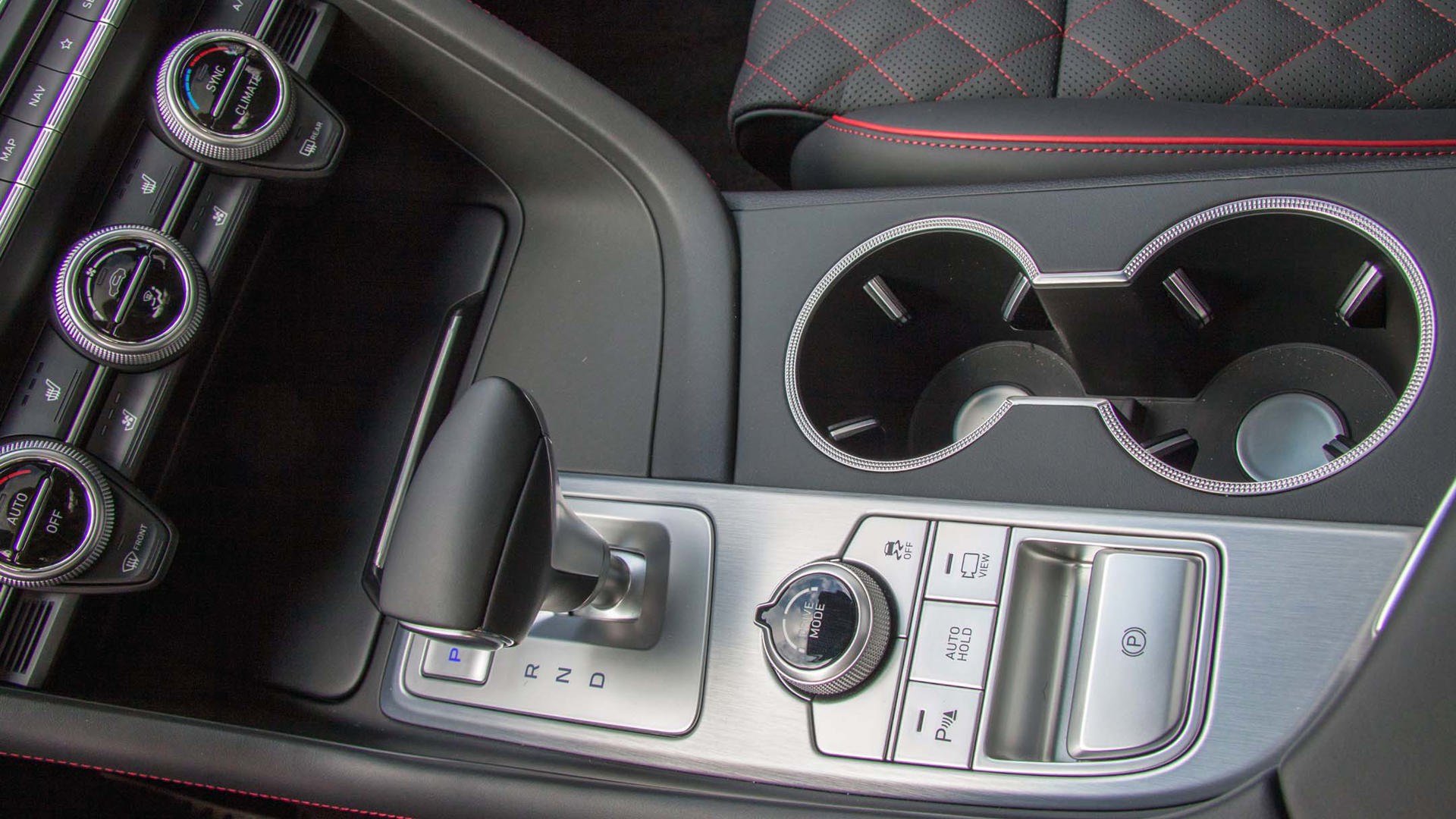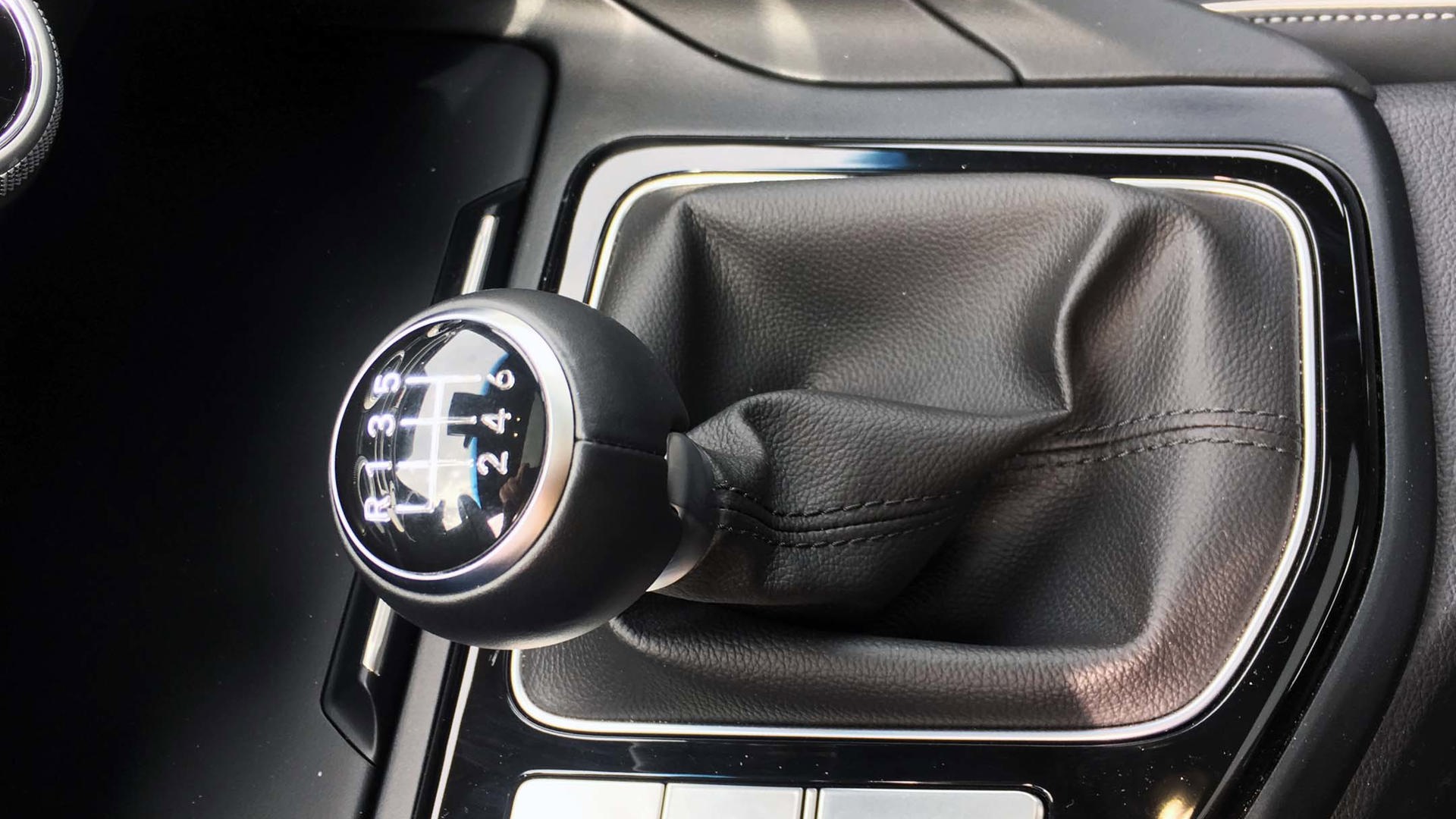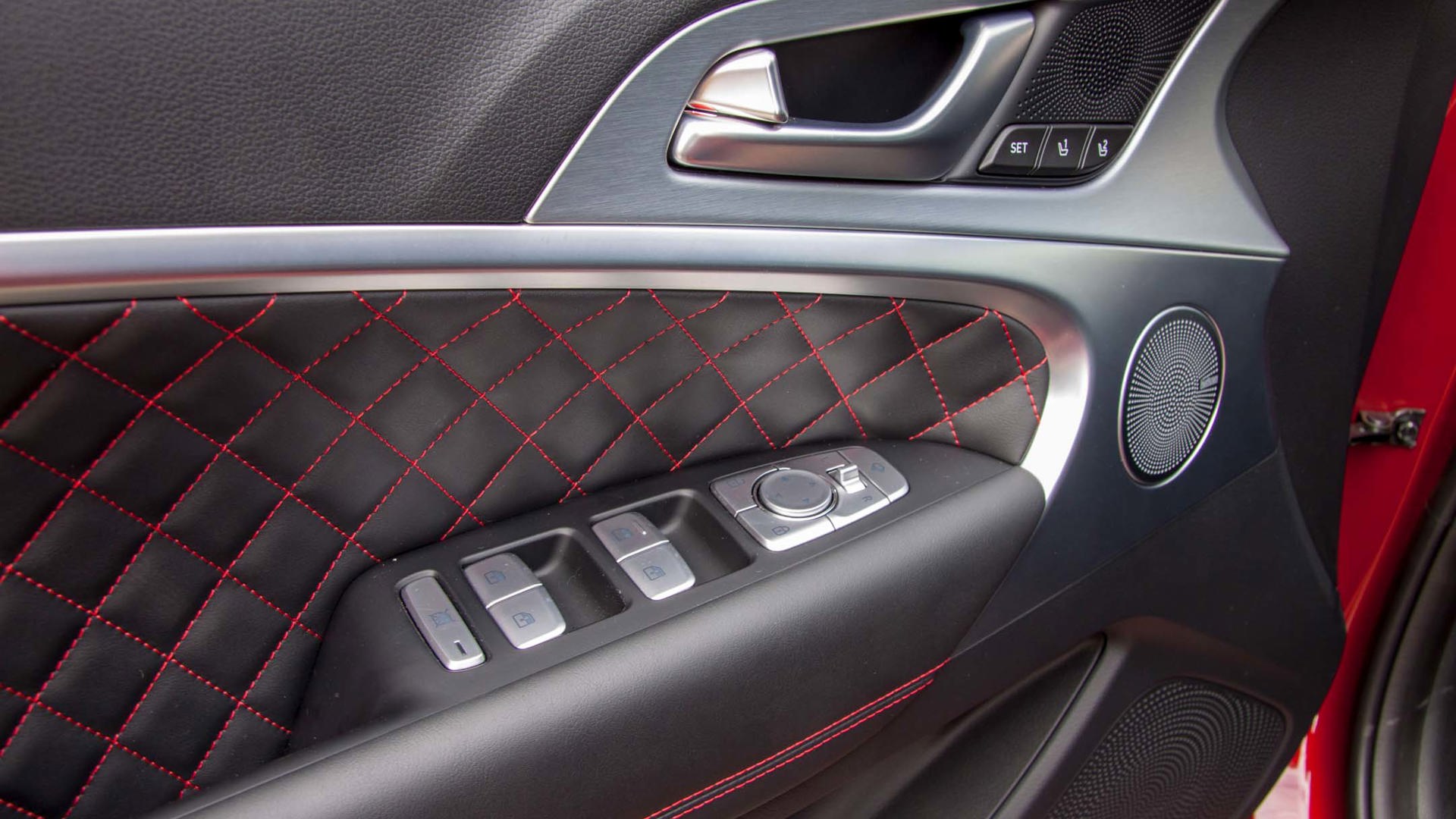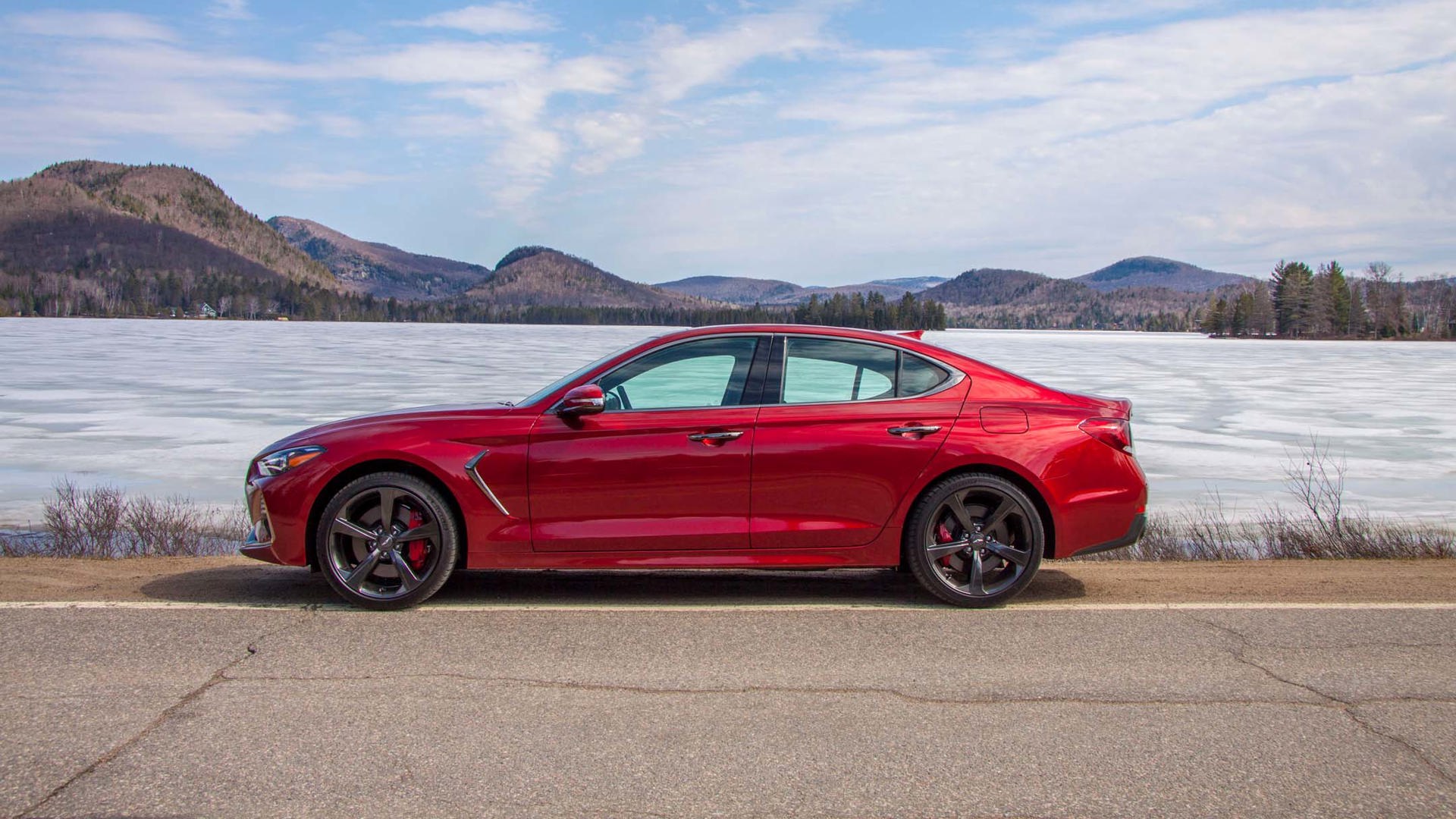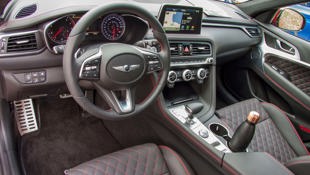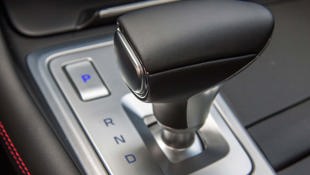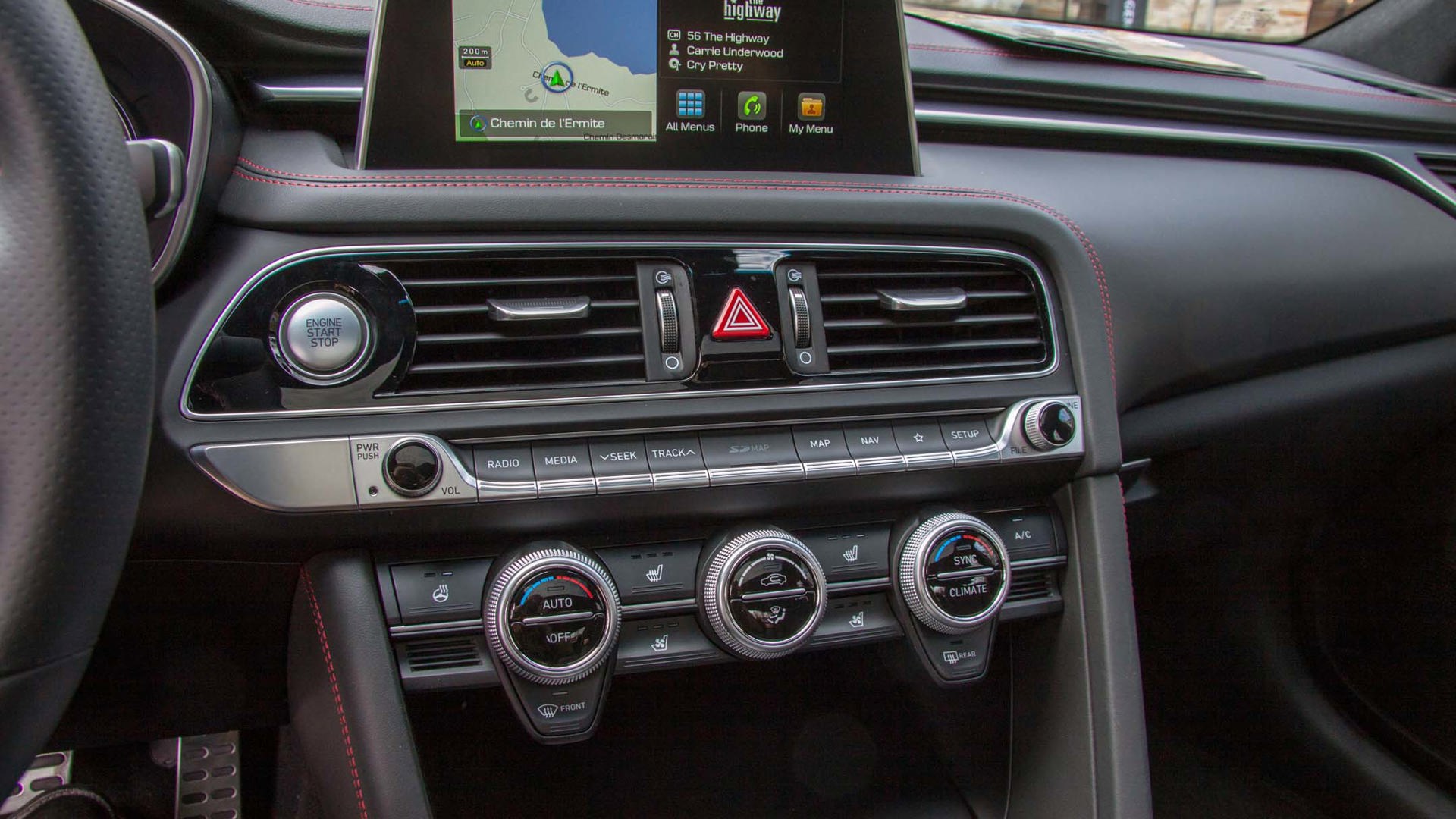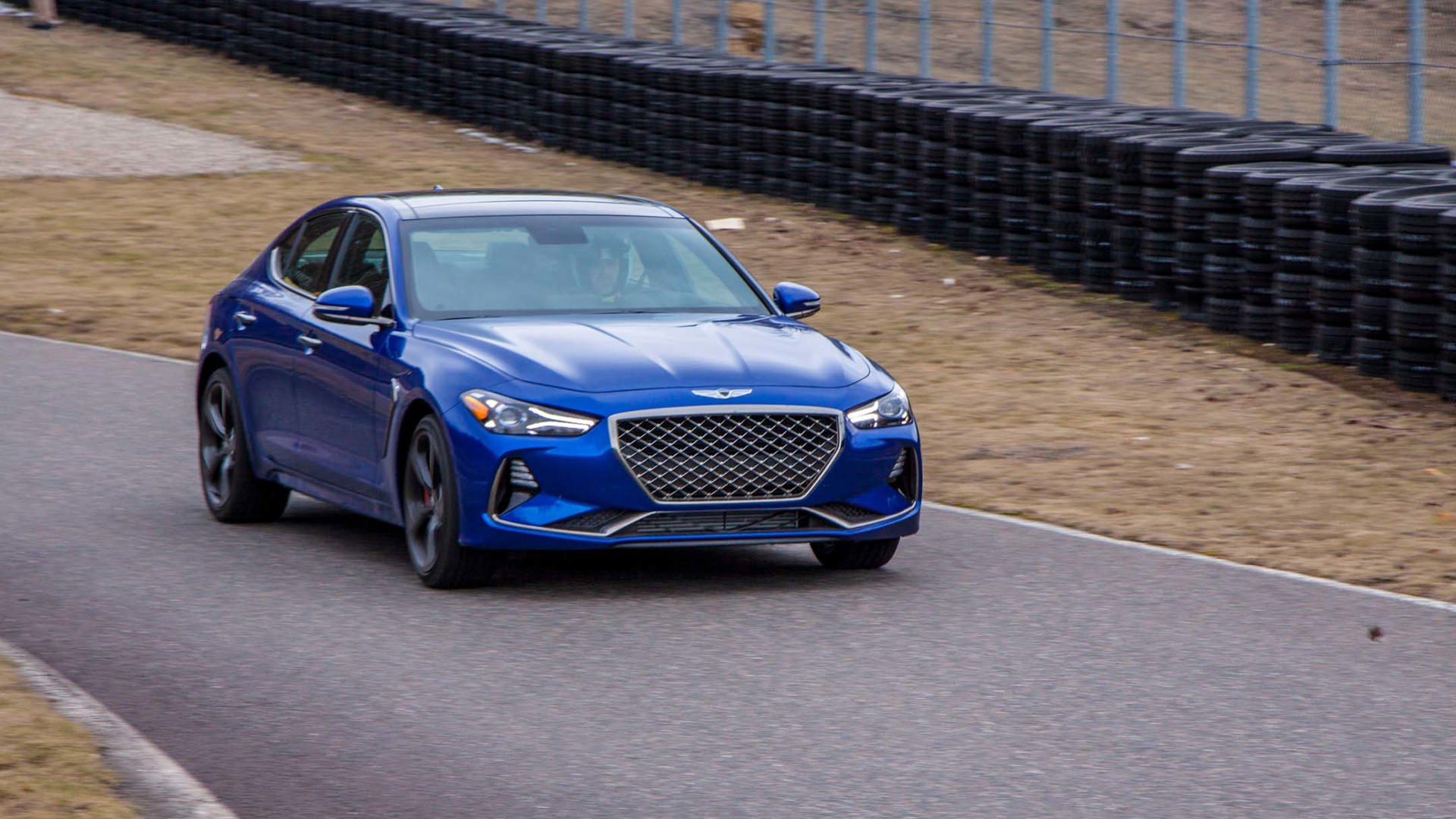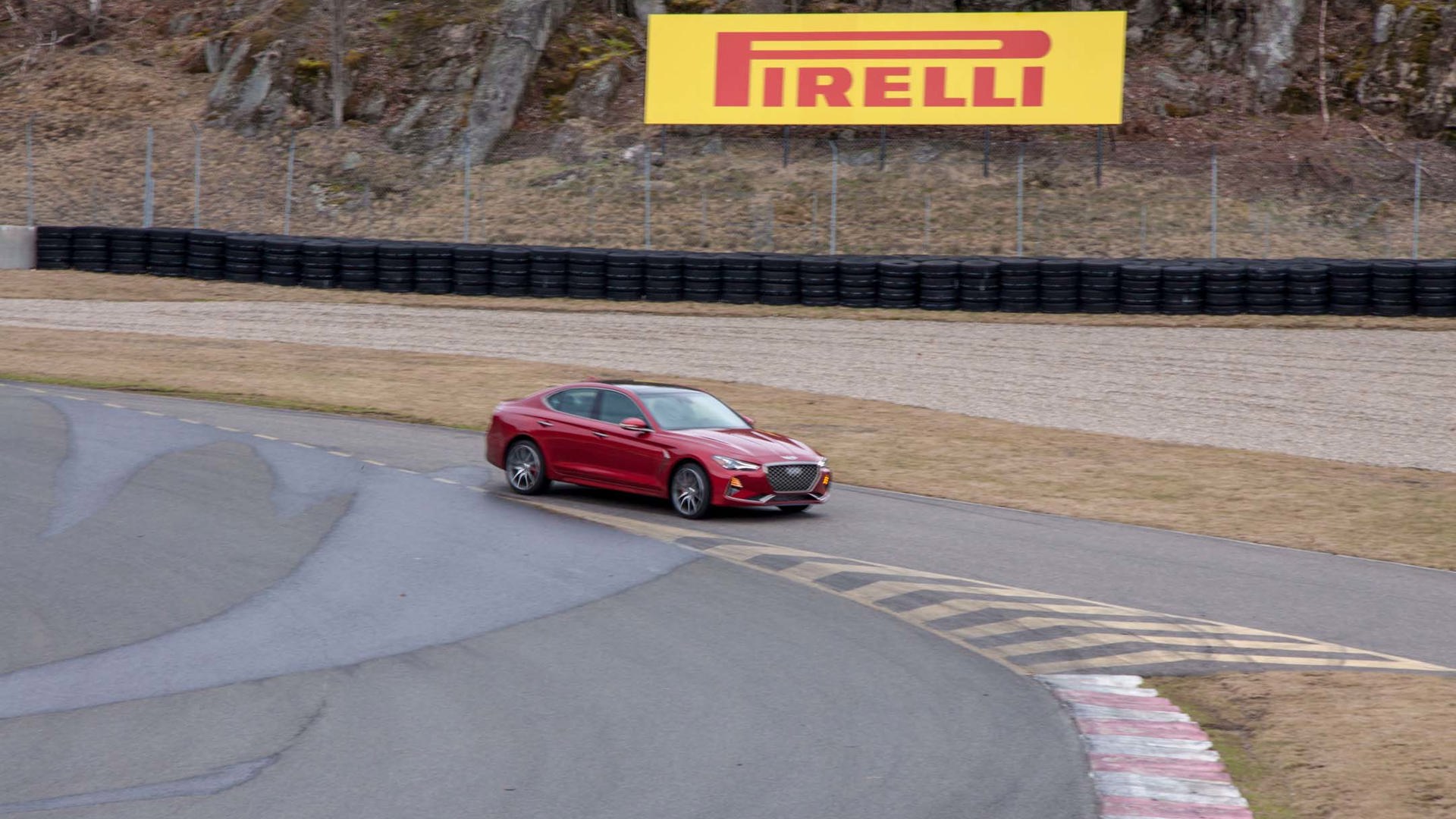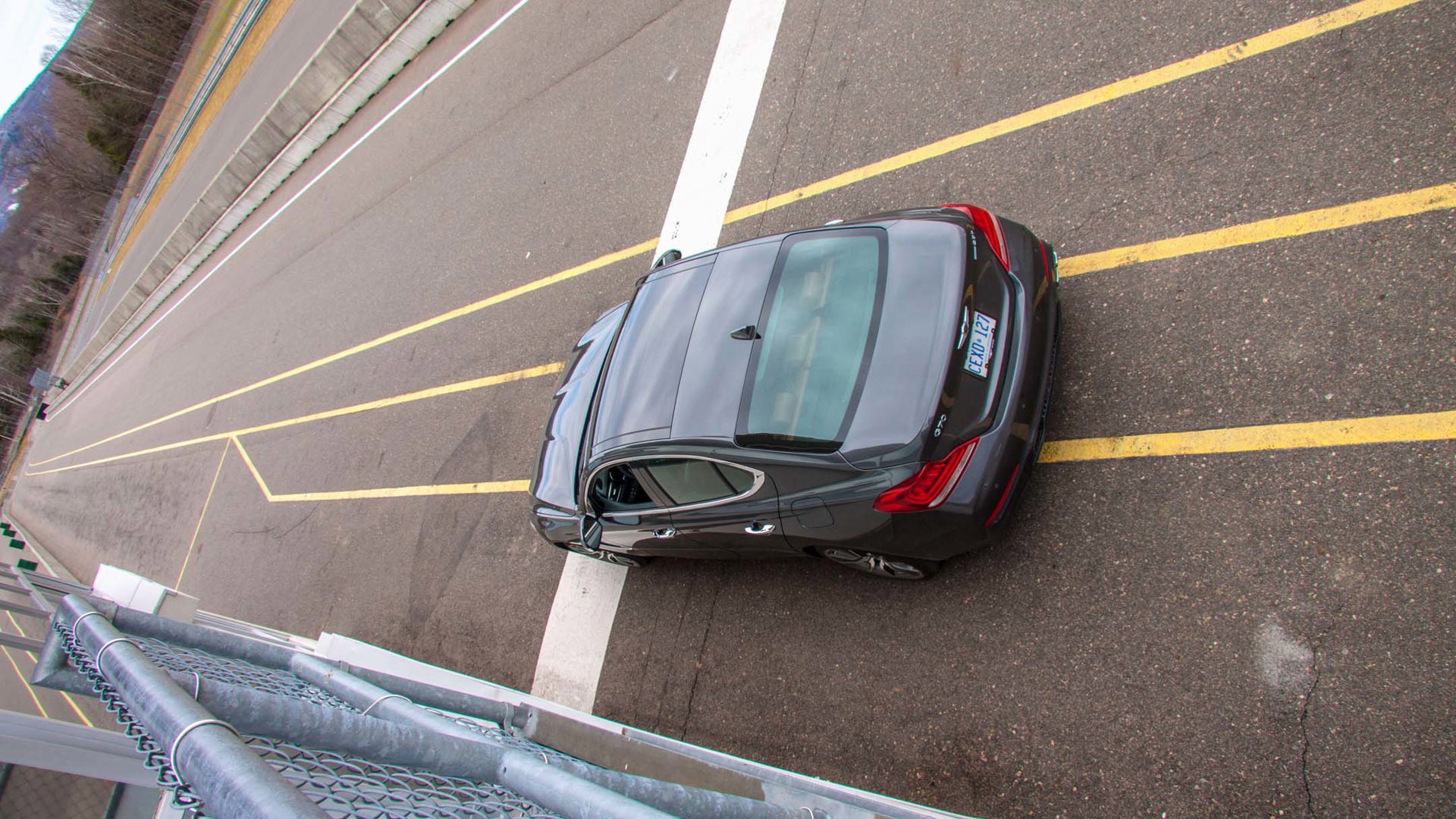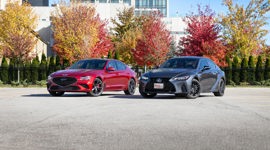MONT TREMBLANT, Quebec – “3 시리즈” – This elegant little block of Hangul characters is Korean for “3 Series”. And in launching the new compact G70, Genesis has fired a warning salvo across the twin-kidney fronted bow of BMW’s venerable performance sedan.
...after all, it was developed on the Nurburgring...
Korean automakers have moved well beyond the days of trying to establish credibility in the mainstream commuter segment. In fact they’ve leapt from “we can make cars just as well as the Japanese” to “we’re ready to take on the Germans”.
Kia set skeptic tongues wagging by setting the BMW 4 Series Gran Turismo as a lofty target for their new Stinger four-door “performance coupe”. And if they didn’t quite succeed in toppling the Germanic stranglehold on the performance touring car segment, they surely proved themselves worthy of sharing the same road with them.
And now sister brand Genesis – a nameplate just 18 months out from under parent company Hyundai’s roof – has brazenly decided to challenge the triumvirate of compact performance sedans; Mercedes C-Class, Audi A4, and specifically, the BMW 3 Series.
It seems a precarious time to bring a new premium sedan into the world, given the explosive crossover encroachment into the rapidly shrinking sedan segment. Michael Ricciuto, Brand Director of Genesis Motors Canada, said that while mainstream sedans are struggling, the premium sport sedan segment is still relevant with buyers who appreciate the “core tenets of fun-to-drive, styling, engine performance and technology”.
And unlike Toyota, who in the 1980s launched their premium Lexus brand into a “white space” left by Germans struggling with quality control; Genesis is facing off against some of the finest engineered compacts ever built. Ricciuto acknowledged the brand’s lack of heritage while speaking of the challenges faced in entering such a well-established and competitive segment. “Authenticity over time will get us the credentials”.
To wit, the standalone Genesis portfolio will not consist of simply re-badged Hyundais sprinkled with flashy trim and go-fast goodies. The product line – scheduled to expand to six vehicles by 2021, including three sedans, one coupe and two SUVs; – will be underpinned by a dedicated rear-wheel-drive platform featuring plenty of rigidity enhancing high-strength steel and lightweight aluminum. And taking a page from Kia’s playbook, which consisted of luring away Audi designer Peter Shreyer as a key player in their self-reinvention, Genesis poached BMW M Division’s chassis developer Albert Biermann, Manfred Fitzgerald – former director of Lamborghini, former Lamborghini and Bentley design chief Luc Donckerwolke, and ex-Camaro designer Sangyup Lee.
But product excellence isn’t enough in this high-stakes market of status, where the logo on the car’s nose means more to the buyer than the engineering that drives it. Genesis has taken the unusual route of creatiing a limited chain of boutique outlets instead of a dealer network to provide a more tailored, premium customer experience, and to establish a sense of brand cachet. Eliminating most of the distasteful aspects of purchase, the company retains ownership of the product with boutique salespeople playing an agent-type role. There’s no haggling, prices are all-in, and buyers can choose from a central inventory or have their car built to order rather than settle for a dealership’s safe and unremarkable selection.
Instead of going the Lexus route of in-your-face design with gnashing mandibles and ginsu knife creases, the G70 has neat and tidy proportions and is embellished with elegant steel instead of flashy chrome. Typical of a performance sedan, it boasts a long wheelbase with short overhangs, and at 1850 mm – the widest stance in the segment. “Fluid elegance” is the term used to describe its flowing, athletic lines. Think Alfa Giulia meets BMW 3 Series, with a hint of Bentley Continental GT in its wide, chain mail grill and winged logo. Pondering my partner’s familiar 2008 3 Series, which I’d driven to the airport on the way to this event; the G70 struck me as prettier and the BMW restrained and almost frumpy by comparison.
There are myriad colour themes – even a boom-chicka-wow-wow Burgundy/forest green motif for the pimptastically-inclined – since one isn’t limited by a dealership’s conservative offerings. The cabin is nicely executed – not quite Audi standards, but swathed in plump leather or top-notch quilted Nappa hides. Analog gauges are tastefully understated and the cockpit is noticeably without the ostentatious virtual 12 inch displays seemingly ubiquitous across the premium spectrum. Instead, there’s an Uber-responsive stand-alone 8-inch touchscreen rising up from the leather-clad dashboard, and all its functions are also accessible by the redundant row of hard switchgear beneath. Busy and a bit dated, it’s nonetheless ergonomically simple to operate, and rounded metal knobs are finished with precise knurling. There are no cheap plastics to be found, nor is there any available wood. Surfaces are sleek, modern, and very well executed.
The cockpit is driver-centric, with steering wheel and smoothly inclined centre-stack embracing the driver. The dash and gauge cowl are low, affording excellent forward vision, and the beautifully bolstered seats are 16-way adjustable in upper trim models, which tighten with velvet grip in Sport setting. Speaking of which, there are five selectable drive modes: Eco, Comfort, Smart (auto) Custom and Sport; which alter steering weight, throttle response, transmission shift points (auto), engine note – and adaptive damper firmness on models with the larger 3.3T engine.
There are two engine choices; a 3.3 L twin-turbo V6 that produces 365 hp and 376 lb. ft, mated to the same Hyundai-designed 8-speed automatic transmission found in the G80, or a 2.0L turbo-charged four that puts out 252 hp and 260 lb. ft. Standard is HTRAC AWD, and the 2.0L can be had in RWD with a six-speed manual. Standard on all Sport models is a multi-plate clutch type mechanical limited slip differential similar to the one found in the Mercedes Benz C63 AMG.
On the road, the G70 is the sort of rock-solid, perfectly composed sport sedan once produced only by the Bavarian MotorWorks. While the Genesis folks studiously avoided any mention of the Kia Stinger, the two cars share chassis and engine components – but the similarity ends there. The Stinger is longer, softer, and depending on trim levels, from 160-475 lb heavier. The Genesis, on the other hand, isn’t merely a contender, it’s a genuine driver’s car with taut, athletic, smile-inducing chassis that’s absolutely delightful to set upon a twisty road. We spent time with every configuration, and though the RWD 2.0T’s six-speed is slick with easily executed throws, the 3.3TT and eight-speed combination hits the sweet spot in my opinion.
Over Quebec’s legendary Mont Tremblant circuit, the G70 comported itself with every bit of the aplomb you’d expect of the blue rondel, the three-pointed star, or the four-rings. Though Genesis insists it’s not supposed to be a track car, it has the confidence-inspiring composure to tackle such a course (after all, it was developed on the Nurburgring) while still retaining the comfortable handling of a luxury sedan.
The Genesis G70 starts at $42,000 for a base 2.0T trim, with standard safety suite, heated steering, and Apple CarPlay and Android Auto Connectivity (but no navigation).
Moving up through the trim levels gets you a 15-speaker Lexicon sound system, navigation, adaptive suspension, larger engine and bigger wheel and tire combination. The G70 tops out at $57,000 for a 3.3TT AWD Sport.
The 2019 Genesis G70 will arrive in Canadian dealerships this spring.
Shots fired.
